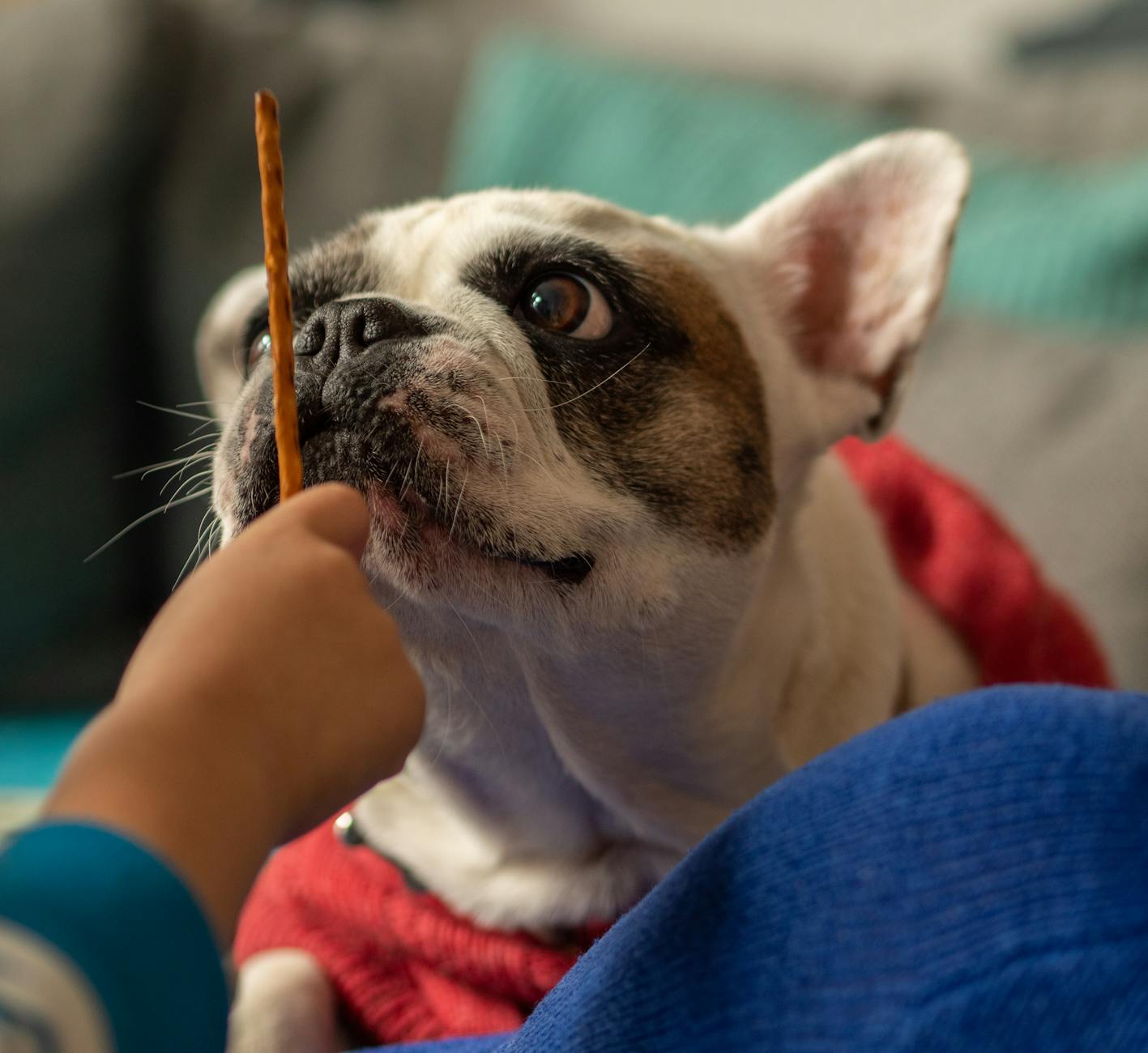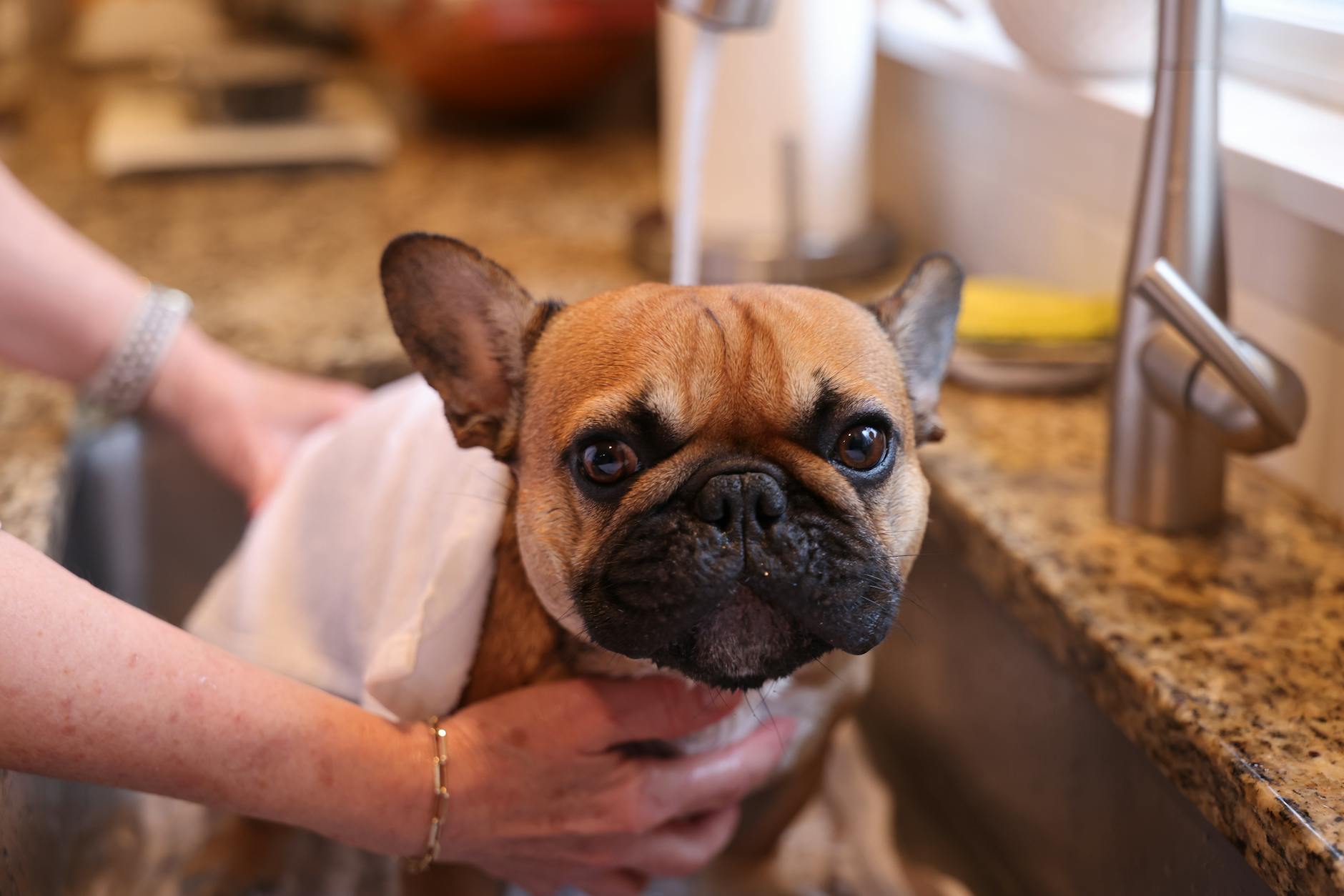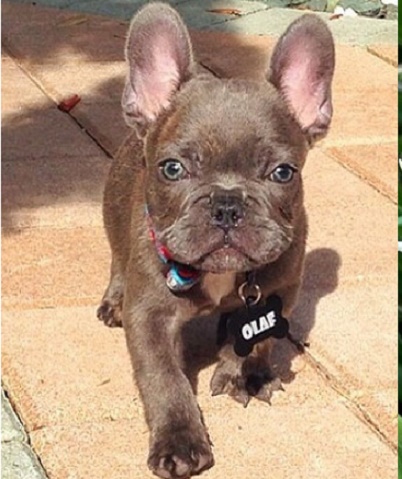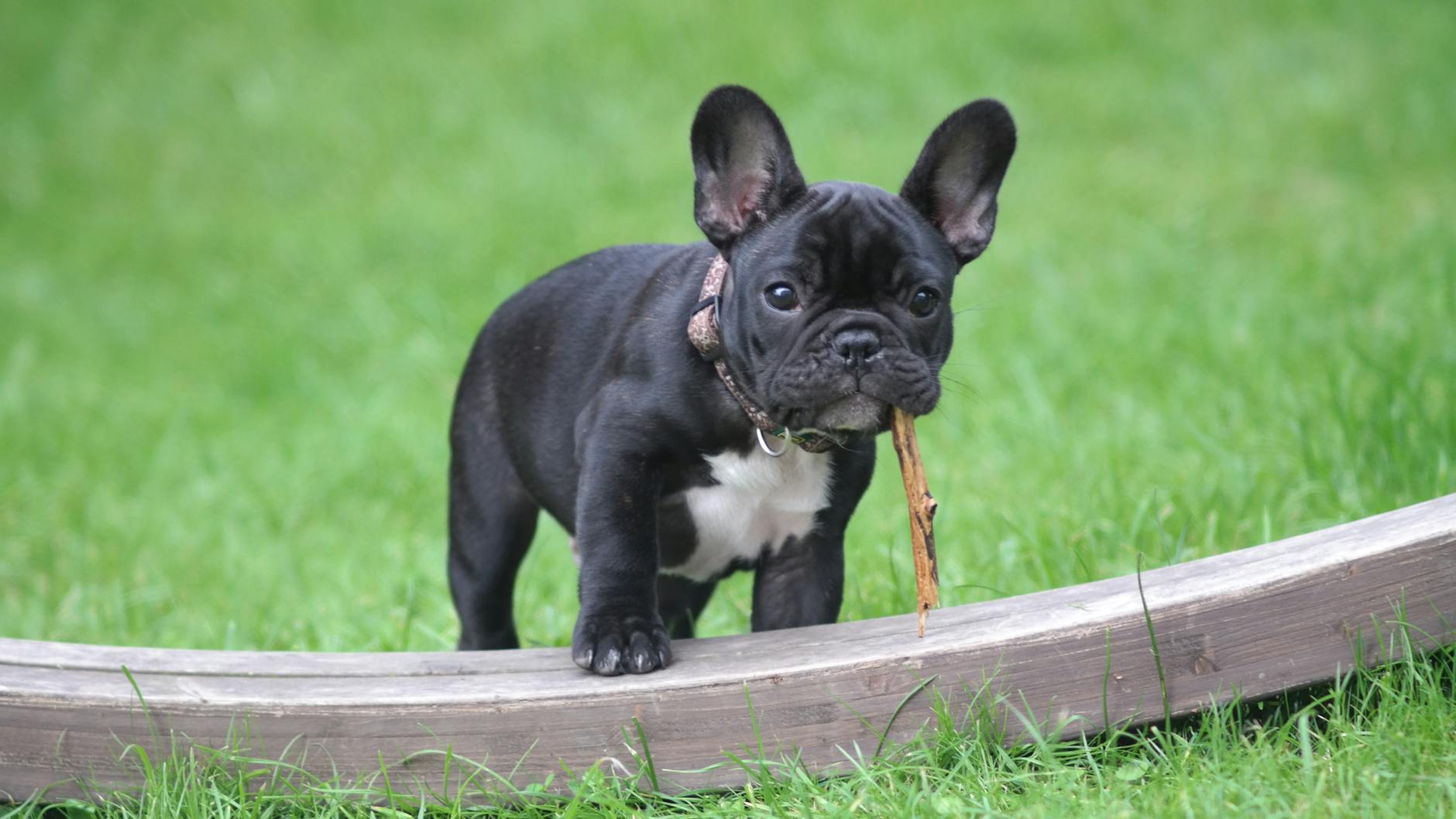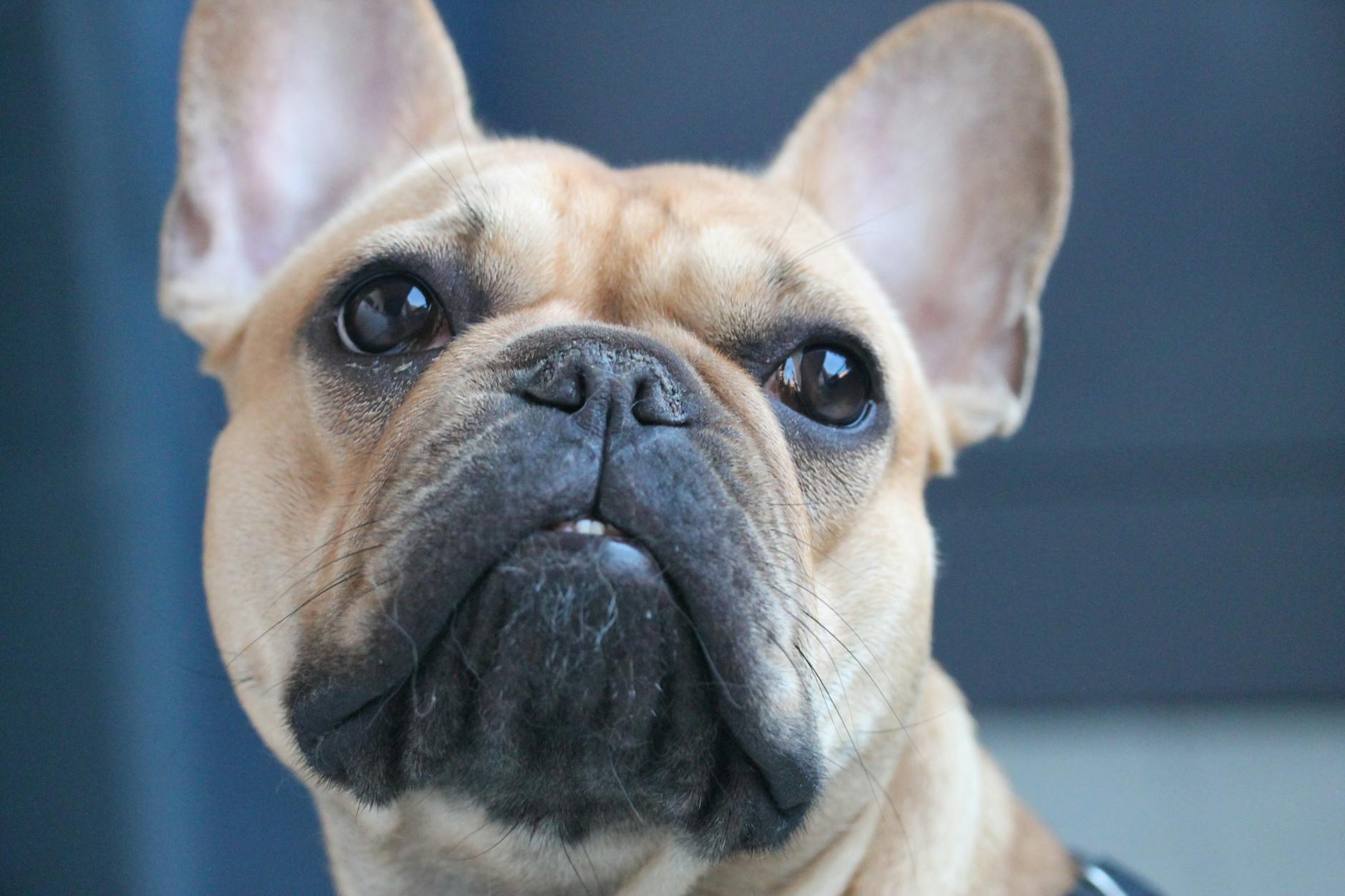
French Bulldog Puppies for Sale
French Bulldog Dog Breed Information
The Ultimate Guide to French Bulldogs: Traits, Care, and Why They’re Loved
French Bulldog, also called “Frenchie,” are one-of-a-kind companions. With their playful spirits, bat-like ears, and affectionate nature, it’s easy to see why they’ve captured hearts everywhere. They’re small but full of personality, making them perfect for families, singles, or anyone seeking a loyal friend. Considering adding a Frenchie to your life? It’s essential to learn what makes them so special.
Explore available French Bulldog puppies and pricing.
Want a quick overview of these wonderful dogs? Check out this YouTube video detailing French Bulldog facts.
History and Origins of the French Bulldog
The French Bulldog, affectionately known as the “Frenchie,” boasts a rich and fascinating past. Despite their modern popularity, these charming dogs have a complex history that stretches across borders and generations. Understanding their origins helps us see just how they’ve become the beloved companions they are today.
From England to France
The story of the French Bulldog begins in England in the early 1800s, where they were originally bred as a smaller version of the Bulldog. Lace workers in Nottingham adored these miniature Bulldogs as loyal and affordable lap companions. However, with the advent of the Industrial Revolution, many lace makers sought opportunities abroad and relocated to France, bringing their little Bulldogs with them.
In France, these dogs quickly gained popularity among artists, merchants, and even Parisian society. It was here that the breed began to develop its distinct characteristics, such as its charming bat-like ears and smaller stature. French breeders sought to refine the breed, creating the recognizable and unique French Bulldog we know today. For more details about their evolution in France, check out this deep dive into French Bulldog history.
Modern Popularity
Fast forward to today, and the French Bulldog is among the most popular dog breeds worldwide. Their appeal lies in their adaptability — whether it’s city apartments or countryside homes, Frenchies fit right in. Their affectionate and comedic personalities make them irresistible to families, singles, and seniors alike.
French Bulldogs are particularly adored in urban areas like New York City, where their small size and low-maintenance nature make them ideal pets. Learn more about their rise in popularity in specific locations on this French Bulldog breeder page. They’ve also gained recognition on a global scale thanks to their appearances in pop culture and their frequent companionship to celebrities.
Frenchies continue to capture hearts across the globe. Whether it’s their snuggly demeanor, iconic ears, or undeniable charm, their history reflects just why this breed is one of the all-time favorites. Want to explore more? Read about the breed’s full history and development.
Distinct Traits of French Bulldogs
French Bulldogs are undeniably unique, and their popularity stems from their charming combination of physical features and captivating personality. Whether you’re already a Frenchie fan or considering bringing one into your home, there’s so much to appreciate about these lovable dogs.
Physical Characteristics
The French Bulldog’s unique appearance is one of its most defining traits. They’re compact, sturdy, and full of personality. Their bat-like ears stand tall and upright, giving them an alert and adorable expression. Their short, smooth coat comes in a variety of colors, making them even more distinctive. Plus, their trademark wrinkled face adds to their charm.
Weighing between 16-28 pounds, Frenchies are small but substantial. Their muscular build and sweet expressions make them feel like both a cuddly companion and a confident little watchdog. If you’re curious about their unique looks, make sure to check out available French Bulldogs here.
Temperament and Behavior
French Bulldogs are best known for their affectionate and playful personality. They thrive on human connection and love being the center of attention. Their adaptability makes them excellent companions for families, singles, or even seniors.
Here are some traits that define their temperament:
- Playfulness: Frenchies have a fun-loving streak that will keep you grinning. From zoomies to goofy antics, they’re always entertaining.
- Affection: These dogs love snuggles. Whether it’s curling up on the couch or resting by your feet, they’re happiest when near you.
- Adaptability: French Bulldogs are comfortable in various environments. Whether you’re in the city, suburbs, or countryside, they adjust.
Frenchies are also known to get along well with children and other pets. Their friendly demeanor and need for companionship make them a true family dog. If you’re interested in learning more about their personality traits, this page might help.
Common Misconceptions about French Bulldogs
While French Bulldogs are beloved by many, they’re sometimes misunderstood. Let’s clear up a few myths surrounding this delightful breed:
- “Frenchies are difficult to care for.”
While they require some care considerations due to their flat faces (like monitoring heat exposure), they’re generally low-maintenance. Their short coat keeps grooming simple. - “They’re lazy and inactive.”
French Bulldogs may not run marathons, but they’re far from being couch potatoes. They enjoy bursts of play and short walks but know when to relax, too. - “They’re not friendly to strangers.”
On the contrary, Frenchies are often social butterflies. While they might bark at unfamiliar faces initially, they usually warm up quickly.
For a deeper dive into their temperament, you can explore more insights here.
By understanding the true nature of French Bulldogs, it’s clear why they’re a top choice for families and individuals alike. Don’t let misconceptions cloud your view of this affectionate and playful breed.
Caring for a French Bulldog
French Bulldogs are adorable and affectionate pets, but they do require specific care to keep them healthy and happy. From grooming their unique facial folds to maintaining their exercise routine, you’ll want to ensure your Frenchie feels their best every day. Here’s a guide to help you meet their essential needs.
Grooming Essentials
French Bulldogs have short coats and distinctive facial folds, both of which need regular attention. Their grooming routine is relatively low maintenance compared to other breeds, but certain areas require special care.
- Facial Folds: Their wrinkles are adorable but can trap dirt, moisture, and bacteria. Clean the folds gently with a soft, damp cloth, and dry them thoroughly to prevent irritation or infection. Using unscented wipes can also make the job easier; just remember to avoid harsh chemicals.
- Coat Maintenance: Despite their short hair, Frenchies shed, especially during seasonal changes. Brushing their coat weekly helps remove loose hair and distribute natural oils, keeping their coat shiny and healthy.
Check out this French Bulldog allergies treatment guide for advice on addressing common skin sensitivities.
- Nail and Ear Care: Keep your Frenchie’s nails trimmed regularly to avoid discomfort. Inspect and clean their ears to prevent wax buildup and infection, especially since they’re prone to ear concerns.
Diet and Nutrition
French Bulldogs are food enthusiasts — which can sometimes lead to overeating! Their diet should consist of high-quality dog food tailored to small breeds.
- Nutritional Needs: Look for dry kibble with a healthy ratio of protein and fat, and avoid foods with excessive fillers like corn or wheat. Be sure the food contains Omega-3 and Omega-6 fatty acids for skin and coat health.
- Watch for Allergies: Frenchies can be sensitive to certain ingredients like dairy, chicken, or soy. Allergies may present as skin issues or gastrointestinal distress. If you notice any adverse reactions, consult your vet and consider switching to hypoallergenic food. Explore our guide to the best food for French Bulldogs with skin allergies for targeted nutrition tips.
- Mealtime Tips: Feed your Frenchie two to three smaller meals daily. Avoid giving table scraps, as they can upset their stomach or lead to weight gain.
Exercise Needs and Limitations
Despite their playful energy, French Bulldogs have specific exercise needs that align with their compact, muscular build and brachycephalic (flat-faced) features.
- Moderate Activity: Frenchies only need low to moderate levels of exercise. Plan for short walks of 15–20 minutes or fun indoor games to burn off their energy.
- Avoid Overexertion: With their flat faces, Frenchies can struggle with respiratory issues. Avoid exercising them during hot or humid weather, as they can quickly overheat. Stick to mornings or evenings if you live in a warmer climate.
- Fun Activities: Frenchies love tug games, short fetch sessions, or even interactive toys for mental stimulation. Always pay attention to their breathing and take frequent breaks during playtime.
For more detailed advice on maintaining their physical and mental health, visit this helpful French Bulldog care guide.
Providing the right care ensures your French Bulldog’s well-being and keeps them happily trotting by your side for years to come. Stay tuned for more on their health and lifestyle!
Health Considerations
French Bulldogs are an adorable and loving breed, but they come with their fair share of health considerations. While owning a Frenchie can be a joyful experience, these dogs require special attention to ensure they lead happy, healthy lives. In this section, we’ll dive into the most common health challenges French Bulldogs face and offer practical advice to handle them effectively.
Respiratory Issues
French Bulldogs are a brachycephalic breed, which means their short noses and flat faces can lead to significant respiratory issues, often referred to as brachycephalic syndrome. This condition makes it harder for them to breathe, particularly in hot, humid environments or during heavy physical exertion.
How can you help your Frenchie breathe comfortably?
- Avoid Overheating: Keep them in a cool, well-ventilated area and limit outdoor activities during warm weather.
- Monitor Exercise: Keep their exercise light and avoid strenuous activities. Short walks are typically ideal.
- Clean Airways as Needed: Work with your vet to keep their nasal passages clean and unobstructed.
In some cases, severe respiratory issues may require surgical intervention. Staying vigilant and proactive can drastically improve your Frenchie’s quality of life. Learn more about this breed’s unique anatomy and care needs on this French Bulldog AKC recognized dog breed page.
Skin and Allergy Concerns
French Bulldogs are prone to skin problems, including allergies that often manifest as itching, redness, and irritation. These issues can result from environmental factors, food sensitivities, or their unique skin folds that trap moisture and bacteria.
Tips to manage their skin and allergies:
- Regular Cleaning: Gently clean their facial folds daily to prevent moisture buildup and infections. Unscented baby wipes work great for this!
- Diet Adjustments: Allergies are sometimes food-related. Opt for high-quality, grain-free, or hypoallergenic dog food if you suspect food triggers.
- Consult a Vet for Persistent Symptoms: If you notice constant scratching or skin redness, a vet may recommend medicated shampoos or antihistamines.
Consistent grooming habits not only keep your Frenchie looking their best but also help minimize skin-related discomfort. Check out this detailed guide on allergy treatments.
Joint and Spinal Problems
French Bulldogs’ compact and muscular build makes them susceptible to a range of joint and spinal issues, such as hip dysplasia and intervertebral disc disease (IVDD). If not addressed early, these problems can lead to chronic pain or even mobility issues.
Here’s how you can help prevent or manage these concerns:
- Maintain a Healthy Weight: Excess weight puts extra strain on their joints, so it’s essential to feed them a balanced diet and monitor portion sizes.
- Avoid High Jumps: Limit activities like jumping off furniture to prevent unnecessary pressure on their spines.
- Use Supportive Bedding: Orthopedic beds can keep them comfortable and reduce joint stress.
Early detection is key, so always consult with your vet if you notice limping, stiffness, or hesitancy to move. For additional reading, this guide on French Bulldog health issues by PetMD is a fantastic resource.
By understanding your Frenchie’s specific health needs, you can pave the way for a long, joyful life with your furry companion. Regular vet checkups, preventive measures, and proper care will keep your Frenchie thriving!
Training and Socialization
French Bulldogs, with their playful personalities and eagerness to please, can be a joy to train and socialize. While their intelligence makes them quick to pick up new skills, their occasional stubborn streak may present challenges. By using the right techniques and mindset, you can help your Frenchie develop good habits and adapt to their surroundings. Below, we’ll explore key strategies to focus on training and socializing this wonderful breed.
Basic Training Tips: Focus on positive reinforcement and consistency
Positive reinforcement is the most effective method when training your French Bulldog. These dogs respond best to rewards, praise, and treats rather than harsh discipline. The secret ingredient? Consistency. Make sure everyone in your household uses the same commands and expectations to avoid confusing your pup.
Key tips for getting started:
- Keep training sessions short — Frenchies have short attention spans.
- Use exciting treats or toys that motivate them.
- Reward behaviors immediately so they can connect the action with the reward.
- Focus on the basics like sit, stay, and potty training before moving on to advanced tricks.
If you’re just beginning this journey, you may find this introductory training guide helpful in laying a strong foundation for your Frenchie’s skills.
Overcoming Stubbornness
Frenchies are known for their charm, but their willful nature can sometimes challenge even the most patient owners. If your French Bulldog decides to dig in their heels, you’re not alone — this breed is celebrated (and occasionally cursed) for its stubborn streak.
Here’s how to manage their moments of defiance:
- Stay Calm but Firm: Don’t engage in a battle of wills. Instead, redirect their behavior in a calm yet authoritative tone.
- Make it Fun: If training feels like a chore, your Frenchie will lose interest. Use enthusiastic tones, play games during commands, and keep the mood light.
- Be Patient: Stubbornness tends to fade with consistent training and structure. Progress might be slow at times, but it’s part of their personality!
- Avoid Overwhelming Them: Too many commands or long sessions can cause frustration for both you and your dog. Focus on one behavior at a time.
For more practical solutions when dealing with stubbornness in Frenchies, check out helpful resources like these training tips.
Socializing Your French Bulldog
Socialization is key to raising a happy and well-adjusted Frenchie. It involves introducing them to various environments, people, and animals early in life to help them feel comfortable and confident.
Start early by exposing your French Bulldog to new experiences, but always go at their own pace. How can you make the process enjoyable for both of you?
- Start at Home: Familiarize them with different sounds, textures, and objects in your home. For example, you can introduce vacuum cleaners or other household appliances gradually.
- Visit Dog-Friendly Places: Head to a local park or pet-friendly cafe to acquaint them with new sights and sounds. Just ensure they’re vaccinated before exposing them to other dogs.
- Set Up Playdates: Arrange play sessions with other dog-friendly companions. This helps your Frenchie learn how to interact politely.
- Watch Their Body Language: Frenchies can sometimes be cautious, so be attentive to signs of stress or unease and let them take breaks when needed.
Socializing isn’t just about mingling with others — it also prepares them to handle new situations, whether it’s meeting strangers or going to the vet. Want more in-depth knowledge about how to tackle socialization? Read this guide to socializing your Frenchie.
By focusing on training and socialization from an early age, you’ll set your French Bulldog up for a lifetime of good behavior and positive interactions, making them a joy to have around.
French Bulldogs as Family Pets
French Bulldogs, or “Frenchies,” are beloved for their compact size, charming personalities, and ability to bond deeply with their families. They are a type of dog that fits perfectly into various lifestyles, from bustling city apartments to serene countryside homes. If you’re curious about their qualities as family pets, read on to explore why French Bulldogs are highly regarded as loyal companions.
Adaptability in Various Homes
French Bulldogs are incredibly versatile when it comes to living environments. Whether you live in a cozy apartment or a spacious house with a backyard, Frenchies can adapt with ease.
Here’s why Frenchies thrive in different setups:
- Small Apartment? No Problem: Their compact size and moderate energy levels make them ideal for apartments. They don’t need excessive space or rigorous exercise routines to feel fulfilled. A couple of short walks and some indoor playtime are enough to keep them happy.
- Adaptable Outdoors: While French Bulldogs prefer spending time indoors with their humans, they equally enjoy a secure backyard where they can roam and sniff around. Just ensure they’re supervised due to their brachycephalic (flat-faced) nature, which limits their heat tolerance.
- Quiet Companions: Frenchies are not known for excessive barking, making them excellent neighbors in apartment complexes as they’re generally more reserved compared to other small breeds.
Their adaptability makes French Bulldogs a great match for almost any living situation, whether you’re a city dweller or suburban family.
Bonding with Kids and Other Pets
French Bulldogs are known for their loving, gentle personalities, making them a top choice for families with children or other pets. They’re often described as “big dogs trapped in small bodies,” with an instinct to protect and care for their loved ones.
How do Frenchies interact with kids and other animals?
- Gentle Playmates for Kids: Frenchies are natural companions for children due to their patient and affectionate demeanor. Unlike some breeds that might become overwhelmed with energetic kids, French Bulldogs are resilient yet loving, always ready to share a cuddle or partake in playtime. You can learn more about how they handle family dynamics here.
- Social with Other Pets: Whether you own a cat, another dog, or even smaller pets, French Bulldogs tend to coexist peacefully. Their sociable nature and eagerness to please make them adaptable in multi-pet households, provided they are slowly and properly introduced.
For those searching for a furry friend that will fit into a family-oriented lifestyle, French Bulldogs won’t disappoint. Their ability to form deep bonds with multiple people and animals in a home elevates their status as one of the most loving breeds. Want to further explore their qualities? Visit this in-depth article.
French Bulldogs bring joy, love, and humor into any home, creating unforgettable memories with every wag of their tail.
Choosing a French Bulldog
Finding the right French Bulldog involves more than just picking the cutest one. These lovable companions come with specific needs, and choosing one responsibly ensures you’re bringing home a healthy and happy pup. Let’s explore what to keep in mind when searching for your perfect Frenchie.
Finding Reputable Breeders
The importance of choosing a qualified and ethical breeder cannot be overstated. A reputable breeder ensures your French Bulldog has been raised in a healthy, nurturing environment. But, how do you spot a good breeder?
Here are the signs:
- They focus on the health and temperament of their puppies, not just appearances.
- They conduct important health screenings, such as tests for genetic issues common in French Bulldogs.
- They allow you to visit in person or provide photos and videos of the puppies’ living conditions.
- They are open to questions and provide documentation like vet records and lineage papers.
Choosing a puppy from a responsible breeder increases the likelihood of bringing home a well-adjusted Frenchie. For more tips, check out this directory of French Bulldog breeders.
Adoption Options
Alternatively, adopting a French Bulldog can be a fulfilling choice. Many rescues and shelters specialize in this breed, providing opportunities to give a second chance to a dog in need.
What should you know about adopting a Frenchie?
- Breed-Specific Rescues: Organizations like the French Bulldog Rescue Network focus solely on rehoming Frenchies.
- Local Animal Shelters: Sometimes you’ll find French Bulldogs at local shelters, often at a lower cost than purchasing from a breeder.
- SNORT Rescue is a fantastic nonprofit that helps place brachycephalic dogs, including French Bulldogs. Learn more here.
Adopted Frenchies often come with a detailed history so you’ll know about any existing health or behavioral issues. Plus, you’ll be providing a loving home to a dog that deserves it!
Cost and Investment
French Bulldogs are not a budget-friendly breed to bring home. Their upfront purchase price and ongoing care costs add up quickly. Here’s what you need to know:
- Initial Price: Frenchies from breeders can cost $3,000 or more, depending on factors like coat color, pedigree, and region. Adopting may cost less, but rescue fees can still range from $500 to $1,000.
- Expenses Over Time:
- Healthcare: Frenchies are prone to respiratory issues, skin allergies, and joint conditions. Regular vet check-ups are essential.
- Food and Supplies: They require high-quality food suitable for small breeds, along with essentials like crates, toys, and beds.
- Grooming: Though low-maintenance compared to long-haired breeds, they still need regular cleaning of their facial folds and occasional baths.
Carefully consider your financial commitment before committing to a French Bulldog. Learn more about costs here.
When choosing a French Bulldog, your thoughtful decisions will make all the difference in creating a lasting, loving bond with your new furry friend.
Conclusion
French Bulldogs are a delightful blend of charm and companionship, perfect for dog lovers seeking an adaptable and affectionate pet. Their compact size and playful nature make them equally suited to apartment living or family homes with kids and other pets. While they do have unique care needs, such as regular facial fold cleaning and exercise moderation, these small efforts are well rewarded with their endearing personalities.
If you’re ready to welcome a Frenchie into your life, find helpful guidance and available puppies on this breeder page. Investing time and love into this breed ensures they become more than a pet—they become family. Ready to meet your perfect match? Start exploring French Bulldog puppies today.
French Bulldog Temperament: What to Expect and How to Nurture It
When it comes to French Bulldog, their temperament is one of the many reasons they’ve become such a beloved breed. These little dogs are known for their affectionate, playful, and social personalities, making them perfect companions for families or individuals alike. Their loyalty and love for human interaction set them apart, making every moment with a Frenchie pure joy.
If you’ve been considering adding a French Bulldog to your family, understanding their unique traits is a must. They thrive in environments where they can be active participants in daily life, offering endless love and laughter. Get ready to explore why Frenchies are much more than just adorable—they’re irresistible.
For more details on their nature, check out our French Bulldog AKC Recognized – French Bulldog Frenchie page.
Looking for visual insights? Watch this informative video on French Bulldog temperament.
Core Personality Traits of the French Bulldog
French Bulldogs are adored worldwide for their charming behavior and unique personality. Whether you’re a first-time dog parent or a seasoned pet owner, knowing these traits can help you better understand and appreciate this lovable breed. Let’s explore their core qualities that make them such remarkable companions.
Affectionate and Loyal Companions
French Bulldogs are true family members. They thrive on human interaction and form deep emotional bonds with their owners. These dogs are happiest when they’re close to their loved ones, often seeking out cuddle time on the couch or following you from room to room.
Their loyal nature ensures they’ll always stand by your side, making them not just pets but steadfast partners in your daily life. For a Frenchie, love isn’t just shown through tail wags, but also through their constant desire to be with you. If you’re considering a French Bulldog, their affectionate demeanor is undoubtedly one of their best qualities. You can explore more about their love for companionship on French Bulldog puppies for sale in Arkansas.
Playful Yet Calm Disposition
French Bulldogs have a delightful mix of playfulness and calm energy. They love to engage in short, fun-filled play sessions, whether it’s a light game of fetch or some gentle tug-of-war. But after the excitement, expect them to settle down and enjoy some quiet relaxation. Their adaptable energy levels make them great for dynamic families as well as more relaxed households.
Their ability to balance play with calmness means they won’t overwhelm owners with hyperactivity. This trait is perfect for those who might want a little fun without the constant commotion. Learn more about picking the right playful puppy by visiting Available French Bulldog Puppies for Sale and Prices.
Social and Friendly Nature
French Bulldogs are known for their sociable personalities. They generally get along wonderfully with other animals and people, making them excellent additions to multi-pet households. Whether it’s a cat, another dog, or even kids, they tend to be friendly and approachable.
However, like any breed, proper early socialization is crucial to ensuring their friendly behavior in various situations. Their charm and friendliness often make them the star of the neighborhood or household. To better understand what makes this breed stand out, check out this guide on French Bulldog’s temperament.
Adaptable to Various Environments
One of the French Bulldog’s most impressive traits is their adaptability. Whether you live in a bustling city apartment or a spacious rural home, Frenchies adjust seamlessly to their surroundings. Their small size and moderate energy needs make them well-suited for apartment living, but they’ll also feel at home in larger spaces.
They don’t require excessive exercise and are content with moderate physical activity, which ensures they fit in with a variety of lifestyles. Their ability to blend into different environments makes them a suitable choice for people across various stages of life. Dive deeper into the breed’s adaptability with the AKC’s French Bulldog Breed Information.
Understanding these traits only scratches the surface of what makes the French Bulldog such a standout breed. Their ability to love, adapt, and bring joy ensures that owning one is a truly rewarding experience. Knowing these key personality traits will help you build an even stronger connection with your Frenchie.
Challenges in French Bulldog Temperament
Understanding and addressing the challenges in a French Bulldog’s temperament is essential for fostering a healthy, happy relationship. While these adorable companions are known for their affectionate and playful personalities, they’re not without quirks. Let’s explore two common temperament challenges and how to effectively manage them.
Stubborn Tendencies
French Bulldogs are infamous for their stubborn streaks. Whether it’s refusing to move during a walk or ignoring commands, their independent-minded nature can be a test of patience. But why are they so headstrong? This trait often stems from their desire to establish control or simply assert their personality.
To navigate this challenge:
- Be Consistent: Stick to a regular routine for training and enforce the same rules every day.
- Use Positive Reinforcement: Reward desired behaviors with treats, praise, or playtime. Frenchies are food-motivated, so this approach often works wonders.
- Exercise Patience: Understand that stubbornness is part of their charm and requires steady, calm persistence.
With the right techniques, their defiance can be turned into cooperation. Visit Daisy French Bulldog dog puppy for sale to better understand Frenchies and what makes them tick.
Sensitive to Their Surroundings
French Bulldogs are incredibly in tune with their environment. Changes in routine, loud noises, or chaotic surroundings can make them feel uneasy. Their heightened sensitivity means they pick up on emotional cues from their owners, making them empathetic but also easily stressed.
To make your Frenchie feel secure:
- Create a Stable Routine: Ensure that feeding, walks, and playtime occur at consistent times.
- Provide a Quiet Space: Designate a comfortable area in your home where your dog can retreat when overwhelmed.
- Limit Exposure to Stressors: Minimize loud noises or abrupt changes when possible.
French Bulldogs thrive in calm, stable environments where they feel safe and protected. If you’re looking for tips on creating the perfect home for this breed, check out French Bulldog allergies treatment to address any external stressors affecting their comfort.
Navigating these challenges may seem daunting, but with the right approach and understanding, your Frenchie will feel loved, secure, and well-adjusted. Their quirks, after all, are part of what makes them so endearing.
Best Practices for French Bulldog Training to Enhance Temperament
Training your French Bulldog can shape their natural temperament into an even more delightful trait. Known for their affectionate and playful demeanor, French Bulldogs are quick learners who thrive when training aligns with their unique personalities. Here are some effective methods to optimize their behavior and temperament.
Positive Reinforcement Training
French Bulldogs respond best to positive reinforcement—whether it’s a treat for sitting on command or a cheerful “good boy!” for behaving well during a walk. Using rewards such as small, tasty treats or enthusiastic praise encourages them to repeat desired behaviors. Their love for snacks makes this a particularly effective tool!
Here are some quick tips:
- Keep the treats small to avoid overfeeding.
- Offer immediate praise or rewards after positive behavior to reinforce the connection.
- Alternate between treats and verbal praise to keep the training engaging and varied.
Consistency is key to getting results. If you’d like a deeper dive into training techniques, visit our guide featuring Daisy, an adorable French Bulldog puppy for sale.
Early Socialization
Exposure to various settings, people, and other pets while they’re young is essential. Early socialization for French Bulldogs can prevent behavioral problems later on, such as fearfulness or aggression. The best time to introduce new experiences is between 8 to 16 weeks, but never feel discouraged if you’re starting later. Being proactive matters most.
Here’s how you can socialize your Frenchie effectively:
- Bring them to dog-friendly parks to meet other dogs.
- Invite friends over to meet your pup in a controlled setting.
- Introduce them to common household activities like vacuuming or doorbell rings to build familiarity.
This social approach ensures your French Bulldog grows into a confident, friendly adult dog. Need more tips? Check out this helpful resource on early socialization and care.
Routine and Consistency
French Bulldogs are creatures of habit. Their sensitive and sometimes stubborn nature improves when they’re guided by a consistent routine. Establishing regular feeding, exercise, and sleeping schedules reassures them, making them feel secure and supported.
Benefits of consistency include:
- Reduced anxiety from predictability.
- Quicker response to training commands over time.
- Better discipline in moments of temptation or distraction.
Even simple actions like feeding them at the same time every day or taking them on regular walks can create a sense of harmony. For more ideas on managing a balanced life with your Frenchie, consider exploring this page about French Bulldog upkeep.
By following these best practices, French Bulldog owners can nurture not just well-behaved pets but also strengthen the bond shared with their furry friends. Training is not just about obedience—it’s about mutual understanding and respect!
How Environment Affects French Bulldog Behavior
A French Bulldog’s temperament isn’t just shaped by genetics—it’s also heavily influenced by the environment they live in. From small apartments to sprawling backyards, the space around them and even the climate can significantly impact their behavior. Let’s explore how these factors come into play to better understand your Frenchie’s needs.
Apartment-Friendly Adaptations
French Bulldogs thrive in apartment settings, and it’s not hard to see why. With their moderate activity levels and easygoing nature, they are perfectly suited for cozy living spaces. Unlike high-energy breeds that need vast areas to run, Frenchies are content with short walks and some indoor playtime.
Their ability to live happily in apartments also stems from their love of companionship. French Bulldogs are not keen on being left alone for long periods, so apartment dwellers who spend much of their time indoors make ideal owners. Keep in mind, however, that investing in durable toys and engaging activities is key to keeping your pup mentally stimulated in a confined space. For more details about this breed’s adaptability, visit French Bulldog AKC Recognized Dog Breed.
Adapting to Larger Spaces
Do you live in a home with a generous backyard? French Bulldogs can adjust to larger spaces as well, though they remain moderate in their exercise demands. While they enjoy brief outdoor activities, they aren’t the type to run marathons across the yard. Simple games like fetch or a supervised stroll around the property are usually enough to keep them happy and healthy.
It’s worth noting that Frenchies are prone to breathing issues due to their flat faces (brachycephalic features). This means they shouldn’t be overexerted, especially in warmer weather. A securely fenced yard offers them the freedom to explore at their own comfortable pace while keeping them safe from hazards. To explore how Frenchies balance their energy and lifestyle, take a look at French Bulldog Breeders New York State.
Impact of Climate on Temperament
French Bulldogs are incredibly temperature-sensitive. Their short snouts make it difficult for them to regulate heat, leading to a high risk of overheating in hot climates. On the flip side, their minimal fur provides little protection against cold weather, making them susceptible to hypothermia during chilly days. These sensitivities can directly affect their behavior.
For example, a Frenchie struggling with heat may become lethargic, irritable, or even unresponsive. Similarly, they might show signs of restlessness or clingy behavior if they’re too cold. To keep your Frenchie comfortable:
- Avoid outdoor activities during extreme weather.
- Use cooling mats or air conditioning to beat the heat.
- Dress them in dog sweaters for added warmth during winter.
Understanding these needs is crucial to ensuring your Frenchie remains happy and comfortable regardless of the climate. If you’d like to read more about how environmental factors shape behavior, check out French Bulldog Behavior – Animal Discuss.
By tailoring their environment to suit their unique requirements, you can create the perfect setting for your French Bulldog to thrive.
Tips to Enrich Your French Bulldog’s Life
French Bulldogs are lovable companions with vibrant personalities. They love to stay engaged and crave activities that stimulate both their minds and bodies. By understanding what makes them happy, you can ensure your Frenchie thrives as a healthy and well-rounded pet. Let’s dive into practical ways to enrich their lives.
Interactive Toys and Games
French Bulldogs are curious by nature, and their enthusiasm for play makes interactive toys a perfect choice. These toys engage their minds while providing physical activity, keeping boredom at bay.
Popular options include:
- Treat-dispensing toys: These make meal or snack time fun and challenge their problem-solving skills.
- Puzzle toys: Encourage your Frenchie to use determination and intelligence to reveal hidden treats.
- Snuffle mats: Excellent for mental stimulation, these mats mimic foraging behavior and provide a calming activity.
Interactive games like hide-and-seek or fetch with a soft ball are also fantastic for keeping your Frenchie entertained. For more ideas on engaging activities, check out this guide on enriching your Frenchie’s life.

Regular Physical Activity
Although French Bulldogs don’t require intense exercise, short and regular walks are crucial for maintaining their health. A brisk walk around the neighborhood or a short jog in cooler weather keeps their weight in check and strengthens their muscles. It’s also a wonderful way to bond with your pup.
Aside from walks, structured play sessions like tug-of-war or a simple game of chase in the backyard are enough to keep your Frenchie content. Just remember—they’re sensitive to extreme temperatures, so always exercise them during mild times of the day.
Did you know physical activity also helps prevent common health issues like obesity? Discover more tips to enhance your French Bulldog’s lifespan at 7 Tips to Extend Your French Bulldog’s Lifespan.
Quality Time with Owners
French Bulldogs are famous for their affectionate nature and strong bond with their owners. They thrive on human interaction and love being part of the family’s day-to-day activities. Spending meaningful time with your Frenchie isn’t just a joy for them—it’s equally rewarding for you.
How can you dedicate quality time?
- Cuddle sessions: Frenchies are lap dogs at heart and love snuggling on the couch.
- Training and learning sessions: Teach them new tricks or commands to stimulate their minds while reinforcing your bond.
- Joint activities: Whether you’re gardening, reading, or relaxing outdoors, let your Frenchie be by your side.
Their loyalty and desire to be close to their humans make this breed exceptional companions for those looking to build lasting and affectionate relationships. Find strategies for strengthening this bond on Maximizing Your French Bulldog’s Lifespan.
By focusing on these simple yet impactful enrichment tips, you’ll ensure your French Bulldog leads a happy, healthy, and fulfilling life.
Common Misconceptions About French Bulldog Temperament
French Bulldogs, or Frenchies, are loved for their quirky personalities and affectionate nature. However, the breed often falls victim to various myths and misconceptions, especially regarding their temperament. Let’s unravel some of the most common misunderstandings and highlight how you, as an owner, can address them effectively.
Stubbornness Misunderstood: Clarify that stubbornness is manageable with the right approach
French Bulldogs are often labeled as “stubborn,” but this trait is frequently misunderstood. Their independent streak doesn’t mean they’re impossible to train—it simply means they respond better to specific methods. Think about it this way: they flourish with consistency and a touch of creativity.
Stubbornness in Frenchies is often a display of their personality, not defiance. For instance, when they sit down mid-walk, it might be because they’re tired, overheated, or even a little mischievous. Instead of getting frustrated, consider what’s triggering the behavior. Understanding their motives transforms “stubbornness” into an opportunity to bond.
Here are some practical tips to manage their independence:
- Consistent Training: Stick to routines and ensure commands remain the same daily. It builds understanding and trust.
- Positive Reinforcement: Reward good behavior with treats, pets, or praise.
- Avoid Negative Reactions: Scolding may make them shut down. Patience always wins with a Frenchie.
When approached with the right techniques, their perceived stubbornness can actually be quite endearing.

Training Challenges Overcome: Highlight how modern training techniques can significantly improve the breed’s behavior
Another common misconception about French Bulldogs revolves around their trainability. Some say they’re too difficult to train, but this couldn’t be further from the truth. With the right tools and mindset, Frenchies can become well-mannered companions.
Here’s why: French Bulldogs are intelligent. They might not excel in agility competitions, but they thrive with positive, focused training. What works best? Using rewards to teach commands rather than outdated punishment-based techniques.
Some tried-and-true methods include:
- Short Training Sessions: They have short attention spans, so quick, five-minute sessions ensure productivity.
- Interactive Commands: Phrases like “sit” or “stay” combined with hand movements create a multi-sensory learning experience.
- Social Learning: Observing other trained dogs in group classes can inspire good behavior in your pooch.
Modern approaches, like clicker training or treat puzzles, have proven incredibly effective. By focusing on praise and engagement, you’ll not only overcome any training hurdles but also deepen your bond with your dog.
For more insights on French Bulldog training, visit Female French Bulldog Puppy Training Tips.
Understanding these misconceptions doesn’t just change perceptions—it changes how we as owners interact with our furry friends. Armed with patience, consistency, and love, you’ll see beyond the myths and embrace the wonderful reality of owning a French Bulldog.
Conclusion
French Bulldogs bring endless joy to their families with their affectionate, loyal, and fun-loving nature. While their temperament may include stubborn streaks or sensitivity, these can be managed with patience, consistency, and positive reinforcement.
These adorable companions are adaptable to many lifestyles, making them perfect for apartments or family homes. If you’re ready to welcome this charming breed into your life, explore insights on suitable choices with French Bulldogs for sale – Price Range in My Area.
A well-trained and loved French Bulldog will reward you with a lifetime of companionship and laughter. Are you ready to embrace the unique bond only a Frenchie can offer?
How French Bulldogs Adapt to Any Lifestyle: Insights and Tips
If you’re looking for a breed that can adapt to just about any lifestyle, French Bulldog, or Frenchie, stand out as the perfect pick. Whether you live in a bustling city apartment or out in the peaceful countryside, they thrive in both environments without missing a beat. In this post, we’ll break down exactly what makes Frenchies so adaptable and why they’re such a sought-after companion.
For more insights into French Bulldogs, check out available French Bulldog puppies and cost or learn about Daisy, the French Bulldog puppy for sale.
The Temperament of French Bulldogs: A Foundation for Adaptability
When it comes to adaptability, the temperament of French Bulldogs is their secret weapon. These adorable, compact dogs are equipped with a natural charm that enables them to thrive in countless environments. Their affectionate disposition and versatile nature make them an ideal fit for nearly any lifestyle. Let’s dive into the aspects of their temperament that have earned them the reputation of being one of the most adaptable dog breeds.
French Bulldogs and Family Life
French Bulldogs are often described as gentle, loving, and patient, which makes them fantastic companions not only for individuals but also for families of all sizes. When it comes to kids, these dogs are an absolute win. Why? They exhibit a calm yet playful demeanor that keeps them balanced—playful enough to keep the kids entertained without being overly boisterous.
Here’s what families love about Frenchies in family settings:
- Resilience with Children: French Bulldogs have a soft spot for kids. They’re patient, tolerant, and pretty unflappable, which is essential when toddlers are around. Unlike more sensitive breeds, Frenchies remain calm, even in an active household.
- Comfort with Everyone: Their friendly temperament extends to every family member, from grandparents to teenagers. They’ll snuggle up with older adults and then seamlessly switch to playtime with the younger ones.
- Low-Maintenance Play: They don’t require extensive outdoor activity, so parents can rest easy knowing these pups are content with short walks and indoor play sessions.
They’re not just pets; they become a part of the family. For more insights about this, check out our blog post on why French Bulldogs are AKC-recognized for their lovable traits.
Adaptability to Apartment Living
If you’re living in a cozy apartment or an urban setting, French Bulldogs will feel right at home. Their adaptability to smaller living spaces is one of the hallmarks of their temperament, making them favorites among city dwellers.
Why do French Bulldogs fit so well in apartments?
- Low Exercise Demands: Frenchies are not hyperactive. A few short walks a day and some indoor playtime will satisfy their exercise needs. They’re perfect for anyone who might not have the time or space for larger, high-energy breeds.
- Quiet Nature: Unlike some breeds that bark at every shadow, French Bulldogs are relatively quiet. They’re far less likely to disturb the neighbors, which is crucial when walls and floors are shared.
- Compact Size: Their small, sturdy build is an asset. They don’t require sprawling spaces to feel comfortable, making your apartment their castle.
Interested in getting French Bulldog puppies? Take a look at Daisy, the French Bulldog puppy for sale. She could be the perfect fit for your apartment lifestyle!
Their calm temperament combined with their ability to adjust to their owner’s profession, family, or home type makes them the quintessential adaptable pet. It doesn’t matter if you’re in a bustling city or a quieter suburb—French Bulldogs consistently show why they’re one of the most versatile dog breeds around. For further reading on their personality, check out The French Bulldog Personality Explained.

French Bulldogs and Varied Climates
French Bulldogs, undeniably charming and loving, have some unique needs when it comes to adapting to different climates. Thanks to their short coat and brachycephalic (flat-faced) structure, they are more sensitive to temperature changes than other breeds. Understanding how to manage their comfort in both hot and cold environments is crucial for their well-being.
Managing Hot Weather
Frenchies don’t fare well in hot weather due to their compact noses, which make it harder for them to regulate body temperature. If you live in a warmer climate, you’ll need to take a proactive approach to ensure their safety and comfort.
Here are some tips to keep them cool:
- Provide Air Conditioning: Keep them indoors during peak heat hours and ensure they have access to a cool, air-conditioned space. Fans may help, but nothing beats the comfort of AC.
- Hydration is Key: Always have fresh, cool water available. A collapsible water bowl is a handy option for walks or outings.
- Avoid Intense Activity: Schedule walks early in the morning or late in the evening when the temperatures are lower. Overexertion can lead to overheating.
- Cooling Mats or Vests: Invest in cooling mats or vests to help them stay comfortable even on hotter days.
- Shade Protection: On outdoor trips, ensure there’s plenty of shade where your Frenchie can relax without direct exposure to the sun.
For more details about French Bulldogs’ care during seasonal changes, check out Seasonal Care For French Bulldogs.
Handling Cold Temperatures
While they may look adorable in cozy sweaters, French Bulldogs’ short, thin coat does little to protect them from the cold. Cold weather can be just as challenging as hot temperatures for this breed, making preparation essential.
Here are a few strategies to keep your Frenchie warm:
- Dog Sweaters & Jackets: Invest in high-quality dog sweaters or jackets to keep your pup snug during winter walks.
- Limit Outdoor Time: Keep walks short when temperatures drop. Frenchies can quickly become chilled, so prioritize indoor play on particularly cold days.
- Heated Indoors: Create a warm indoor space for them to rest, away from drafts or cold floors. Heated dog beds can be a fantastic tool for this.
- Booties for Their Paws: Protect their sensitive paw pads from snow, ice, or salted sidewalks with dog booties.
If you’re considering getting a French Bulldog but are unsure about their adaptability in extreme climates, the French Bulldogs Adaptable Dogs and Puppies page offers great insights into their care requirements.
French Bulldogs thrive best when their environment is carefully controlled to suit their sensitivity to weather. Whether it’s summer heat or a winter chill, taking these measures ensures your Frenchie stays happy, healthy, and ready to provide all the love they’re known for. For more information, explore this detailed guide on French Bulldog Temperature Tolerance.
Care Needs for Optimized Adaptability
French Bulldogs, while inherently adaptable, do require proper care to truly thrive in diverse environments. A consistent care routine supports their health and enhances their ability to adjust, whether it’s a new home or meeting new friends. Let’s dive into two crucial aspects of their care that directly impact their flexibility—grooming and monitoring health concerns.
Grooming and Hygiene

Grooming is a cornerstone of maintaining a French Bulldog’s adaptability. With their short coats and iconic facial folds, it’s essential to keep your Frenchie clean and comfortable. Poor grooming not only affects their physical comfort but can also lead to issues that might make adaptability more challenging.
Here are grooming tips to keep your Frenchie in peak condition:
- Facial Folds: These adorable skin folds can trap moisture, dirt, and bacteria, leading to infections or irritation. Clean them gently but thoroughly with dog-safe wipes or a damp cloth. A regular cleaning schedule is critical, especially after meals or outdoor activities. For more details, visit French Bulldogs For Sale Price Range In My Area.
- Coat and Shedding: French Bulldogs don’t shed excessively, but regular weekly brushing with a soft-bristle brush helps remove loose hair and stimulates natural oils. This routine will keep their coat sleek and skin healthy.
- Nails: Overgrown nails can cause discomfort and make it hard for them to walk. Trim their nails every 3-4 weeks or as needed to prevent any issues.
- Bathing: They don’t require frequent baths—once a month or when visibly dirty is usually enough. Use a mild, dog-specific shampoo to maintain healthy skin.
For more grooming advice, check out this detailed guide on French Bulldog Grooming: Bathing, Shedding, and More.
Health Concerns to Monitor
French Bulldogs are predisposed to certain health challenges, which, if unmanaged, might hinder their adaptability. Recognizing and addressing these concerns ensures they continue to thrive wherever life takes them.
Common Health Issues to Watch
- Brachycephalic Syndrome: Due to their unique flat faces, breathing difficulties are a common issue. Monitor for excessive panting or wheezing, especially during exercise or in hot weather. Ensure they have plenty of rest breaks during playtime and always provide a cool, comfortable environment.
- Skin Allergies: These can arise from environmental triggers or improper grooming. Watch for signs of red, itchy skin or frequent scratching. Regular cleaning and hypoallergenic diets can help reduce potential flare-ups.
- Eye Concerns: Their prominent eyes can be prone to debris and irritation. Gently clean around their eyes with a soft, damp cloth if necessary.
Preventative care, regular vet visits, and a watchful eye on these issues will help your Frenchie flourish in any situation. Learn more about managing their allergies and other health concerns at French Bulldog Allergies Treatment.
Healthy grooming routines and addressing health concerns head-on allow your French Bulldog to embrace life confidently, maintaining the adaptability they’re so well-loved for. Keep these factors in mind, and you’ll have a happier, more resilient Frenchie by your side.
Social Adaptability: Interacting with People and Pets
French Bulldogs, affectionately called “Frenchies,” are known for their remarkable sociability. These compact dogs crave companionship, making them excellent fits for various social settings. It’s their endearing personalities and love for interaction that sets them apart. Whether bonding with people or co-existing with other pets, Frenchies excel at building connections.
Training for Social Situations

Social adaptability isn’t just innate; it can also be nurtured with proper training. French Bulldogs benefit greatly from early socialization, which lays the foundation for how they interact with both people and other animals throughout their lives.
Here are some practical tips on training your Frenchie for social scenarios:
- Start Early: Exposing your puppy to a variety of environments, people, and other pets early on can significantly reduce shyness or aggression later. Puppies are like sponges during their formative weeks!
- Positive Reinforcement: Reward calm, friendly behavior with treats and praise. Frenchies respond exceptionally well to encouragement and consistency, building good behavior over time.
- Controlled Group Settings: Puppy classes or doggy meetups can help French Bulldogs learn to interact in a group. These environments provide valuable practice in a safe, supervised setting.
- Avoid Overwhelming Situations: If your Frenchie seems nervous around large crowds or new animals, introduce them slowly. Gradual exposure is essential for building confidence without stress.
- Teach Basic Commands: Simple instructions like “sit” or “stay” can provide structure in social interactions. These commands help redirect unwanted behavior, ensuring a positive experience for everyone involved.
Proper socialization can make any French Bulldog a polite member of the family and wider community. For additional training tips, you can check out Beautiful Blue French Bulldogs available for purchase, which also covers some care essentials.
Frenchies and Multi-Pet Homes
French Bulldogs are great contenders for homes with multiple pets. Their easygoing temperament and desire to be part of a “pack” often make them quick friends with other animals. However, like any relationship, good planning and effort play a role.
Here’s how Frenchies typically perform in multi-pet households:
- Other Dogs: French Bulldogs generally get along well with other dogs, regardless of size. Their playful yet non-aggressive nature can make them a hit with dog siblings. To ensure harmony, supervise initial meetings and monitor body language for signs of stress.
- Cats: Surprisingly, many French Bulldogs coexist beautifully with cats. With careful introductions, they often form adorable friendships. Patience is key; let both animals adjust to each other’s presence without pressure.
- Smaller Pets: Frenchies can be curious about rabbits, birds, or rodents, so supervision is a must. Their inclination to chase can emerge, especially if not initially trained to coexist peacefully.
French Bulldogs thrive in environments where they feel included. By creating a routine that considers the needs of all pets involved, you’ll foster peace and camaraderie.
For more insights on French Bulldog compatibility and adaptability, read New Mexico French Bulldog breeders, which explores their interactions and sociable behavior. You’ll find guidance for those considering adding a Frenchie to their multi-pet household.
When trained properly and introduced with care, French Bulldogs will not only adapt to their social surroundings but will shine as lovable companions. Their natural charm and affectionate personality ensure they fit in almost anywhere!
The Role of Proper Breeding in Adaptability
French Bulldogs are celebrated for their adaptability, but it’s no coincidence. This trait stems from generations of thoughtful and ethical breeding practices. Proper breeding doesn’t just ensure the preservation of breed standards—it strengthens their ability to adjust to varied lifestyles and circumstances. Let’s explore how breeders play a pivotal role in honing this characteristic.
How Ethical Breeding Shapes Temperament
A dog’s temperament is a critical component of its adaptability. In the case of French Bulldogs, ethical breeding directly impacts their calm, friendly, and sociable demeanor. Here’s how:
- Selective Pairing: Reputable breeders carefully match dogs with compatible temperaments to produce offspring that inherit desirable behavioral traits like patience and tolerance. This ensures the puppies are naturally better equipped to thrive in dynamic environments.
- Socialization from Day One: Puppies raised by ethical breeders are often introduced to various stimuli, people, and settings during their early developmental stages. This foundational exposure helps Frenchies become comfortable with new experiences later in life.
- Focus on Health and Stability: Behavioral issues, often stemming from overbreeding or neglect, are minimized through ethical practices. Healthy, well-cared-for parents are more likely to produce resilient offspring.
Choosing a breeder that prioritizes these practices is essential when considering your future pet. Learn more about the importance of responsible breeding at Dog Breeders.
Health and Genetics: The Backbone of Adaptability
The physical well-being of a French Bulldog is just as influential in their adaptability as their temperament. From breathing capabilities to immune strength, ethical breeding focuses on minimizing health-related challenges.
- Mitigating Common Health Issues: Many French Bulldogs suffer from brachycephalic-related concerns (due to their flat faces), but ethical breeders work to select genetic lines that show fewer extreme traits. This creates healthier pups that can better handle stressors like travel or climate changes.
- Building Strength for Varied Conditions: Proper breeding ensures a stable physical foundation, allowing dogs to adjust more easily to different lifestyles, including busy urban areas or tranquil rural settings.
- Genetic Testing and Screening: Reputable breeders utilize modern tools to test for hereditary conditions, reducing the risk of unforeseen health problems.
When searching for a Frenchie, consider breeders who go above and beyond to ensure a healthy lineage. Check out Gold Standard Breeders for more on what to look for.
Why Choosing a Reputable Breeder Matters
Adopting a French Bulldog from a knowledgeable breeder doesn’t just support ethical practices—it sets your future pet up for success. Well-bred Frenchies tend to acclimate more seamlessly to changes in their environment compared to those bred indiscriminately.
For instance:
- French Bulldogs from reputable breeders are less likely to experience severe anxiety or behavioral quirks when transitioning to new homes.
- They tend to live healthier and longer lives, making them better companions through the years.
Ultimately, when you bring home a French Bulldog raised with care, you aren’t just gaining a pet—you’re welcoming a loyal, adaptable family member who will thrive in almost any scenario. For additional tips on what to look for when choosing a breeder, visit this overview on top-tier breeding practices.
Conclusion
French Bulldogs shine as adaptable companions thanks to their affectionate temperaments, compact size, and ability to thrive in various environments. Whether you’re in a bustling city apartment or a tranquil suburban home, their low-maintenance nature and loving personalities make them a great match for any lifestyle.
Providing proper care, from grooming to health monitoring, further enhances their ability to adjust and thrive. If you’re ready to welcome a Frenchie into your life, explore available French Bulldog puppies tailored to your needs.
These dogs are more than just pets—they’re loyal companions who fit seamlessly into diverse living situations. Don’t wait, find your perfect French Bulldog today!
French Bulldog Health: Care Tips for Your Frenchie
French Bulldogs are adorable, but their distinctive features come with unique health challenges. From breathing difficulties to joint issues, these lovable companions require extra care to stay healthy and happy. Understanding their specific needs not only helps them thrive but also strengthens the bond you share. With a little effort, you can ensure your Frenchie lives a fulfilling, comfortable life.
Learn more about their unique traits and potential health concerns in French Bulldog AKC recognized – French Bulldog Frenchie.
For additional tips, check out this helpful video on maintaining French Bulldog health: watch here.
Common Health Issues in French Bulldogs
French Bulldogs, affectionately called Frenchies, are one of the most popular dog breeds in the world. With their adorable wrinkled faces and compact stature, it’s no wonder these pups are so beloved. However, their unique physical traits can make them prone to certain health problems. Being informed about these issues can help you provide the best care for your furry friend.
Brachycephalic Syndrome
French Bulldogs are classified as brachycephalic dogs, meaning they have short noses and flat faces. While this makes them irresistibly cute, it also makes them susceptible to Brachycephalic Syndrome, a condition affecting their respiratory system.
- Causes: This condition occurs due to the physical structure of their skull, which leads to narrow nostrils, an elongated soft palate, and a narrow windpipe.
- Symptoms: If your Frenchie snorts, snores loudly, or struggles to breathe after minimal exercise, they may have this issue. Other signs include coughing, gagging, and overheating, especially in warm weather.
- Management: Mild cases can be managed with weight control and avoiding intense activity during hot weather. Severe cases may require surgery to improve airflow.
For families considering adding a French Bulldog to their lives, it’s vital to understand the breed’s health needs. Learn more about available French Bulldogs and their care in French Bulldogs for Sale Price Range in My Area.
Skin Allergies
Skin allergies are a common problem in French Bulldogs and can manifest in several different ways. These allergies can range from mild irritation to severe skin infections if left untreated.
- Causes: Frenchies often have allergies caused by environmental allergens like dust or pollen, food sensitivities, or contact irritants like certain shampoos or cleaning products.
- Symptoms: Look for excessive itching, redness, or hot spots on their skin. You may also notice your Frenchie biting or licking certain areas constantly.
- Prevention and Treatment: Keeping your pup’s skin clean and using hypoallergenic grooming products can help. In severe cases, your vet may recommend antihistamines, special diets, or medicated shampoos.
For more information on managing allergies, visit French Bulldog Allergies Treatment.
Joint and Mobility Issues
Due to their unique build, Frenchies are also prone to joint problems like patellar luxation and hip dysplasia, which can affect their mobility and overall quality of life.
- Patellar Luxation: This occurs when the kneecap slips out of place. Signs include limping or skipping steps while walking. Treatment can range from weight management to surgical correction in severe cases.
- Hip Dysplasia: This condition involves a malformation of the hip joint, which can lead to arthritis over time. Symptoms include difficulty standing up, reluctance to climb stairs, and decreased activity levels.
- Lifestyle Adjustments: Maintaining a healthy weight and providing low-impact exercise like swimming can strengthen their joints. Consider orthopedic dog beds for added comfort.
Understanding and addressing joint health early will vastly improve your Frenchie’s daily comfort and activity levels. French Bulldogs are worth every bit of care, and their cuddly companionship makes up for their health quirks tenfold.
Essential Care Tips for French Bulldog Owners
Owning a French Bulldog comes with the responsibility of meeting their specific care needs. These little charmers are unique in every sense, and to keep them healthy and happy, you need to pay attention to details. From ensuring regular health check-ups to maintaining their unique hygiene requirements, here’s what you need to know.
Importance of Regular Vet Visits
Regular veterinarian visits are critical for keeping your French Bulldog in optimal health. Think of these check-ups as preventive maintenance to catch and treat any issues before they become serious.
- Early Detection Saves Lives: French Bulldogs are prone to unique health challenges like respiratory issues, joint problems, and allergies. Early diagnosis can significantly improve outcomes and even reduce healthcare costs in the long run.
- Customized Health Plans: Each Frenchie is different, and professional advice from your vet can help you tailor their diet, exercise routine, and preventive care.
- Vaccinations and Parasite Control: Routine visits ensure your pup stays up-to-date with vaccinations, flea control, and heartworm prevention.
For an in-depth guide on how to keep your Frenchie healthy, visit How to Care for French Bulldogs.
Grooming and Hygiene
A Frenchie’s adorable wrinkles and smooth coat require more care than you might expect. Their skin needs regular cleaning to prevent infections.

- Clean Facial Folds Regularly: French Bulldogs’ facial folds are prone to trapping dirt, moisture, and bacteria. Use a soft, damp cloth to gently wipe the folds daily and ensure they are completely dry afterward.
- Weekly Bathing Routine: While Frenchies have a short coat, they still need regular grooming to maintain healthy skin and fur. Use a gentle, hypoallergenic pet shampoo to avoid skin irritation.
- Nail Clipping and Ear Cleaning: Keep their nails trimmed to prevent overgrowth and discomfort. Check their ears weekly for signs of wax buildup or infection.
- Dental Care: Brush their teeth regularly to prevent periodontal disease. You can also use vet-approved dental treats for added freshness and oral health.
For more grooming tips and information about maintaining your Frenchie’s hygiene, check out Available French Bulldog Puppy for Sale and Cost Prices.
By staying proactive with these essential care routines, you can ensure your Frenchie thrives, looking and feeling their best every day.
Nutrition for Your French Bulldog
Providing proper nutrition for your French Bulldog is essential to ensure a healthy, vibrant life. These charming pups have unique dietary needs that demand careful attention. Let’s explore what makes an ideal diet for your Frenchie and how supplements can play a role in their overall well-being.
Choosing the Right Diet
French Bulldogs are prone to obesity if overfed or fed the wrong type of food. Selecting a well-balanced, high-quality diet is crucial for their health and happiness. Here’s what you need to know:
- Primary Ingredients: Look for dog foods that list real, whole proteins (like chicken, beef, or fish) as the first ingredient. Avoid brands with excessive fillers like corn or soy.
- Portion Control: These small dogs don’t need large meals. Stick to portion guidelines based on their weight and activity level to prevent weight gain.
- Healthy Fats and Carbohydrates: Good fats, such as omega-3 and omega-6 fatty acids, support a shiny coat and healthy skin. Whole carbs like sweet potatoes or brown rice provide sustained energy.
- Allergy-Sensitive Diet Options: Since Frenchies may develop food allergies, consider grain-free or limited-ingredient diets if symptoms like skin irritation or upset stomach occur.
To learn more about tailoring a food plan for your Frenchie’s specific needs, visit Beautiful Blue French Bulldogs Available for Purchase. Your veterinarian can also provide tailored advice to support your pup’s nutritional needs.
For additional insights, check out this excellent guide on choosing the best French Bulldog diet.
Nutritional Supplements
Sometimes, even the best diet isn’t enough to meet all your French Bulldog’s unique nutritional demands. That’s where supplements come in. Adding veterinarian-approved supplements to their feeding plan can help maintain their health and energy.
- Joint Health: Frenchies often deal with joint issues due to their build. Glucosamine and chondroitin supplements can support joint cartilage, alleviate discomfort, and improve mobility.
- Omega Fatty Acids: These are excellent for not just the skin and coat but also for brain health and reducing inflammation.
- Probiotics: A healthy gut means better digestion and nutrient absorption. Probiotic supplements can keep your Frenchie’s tummy trouble-free.
- Multivitamins: Filling any gaps in their regular diet, these provide essential minerals and vitamins that might be missing from their meals.
Speak with your veterinarian for specific recommendations tailored to your French Bulldog. They can suggest the right dosage and ensure the supplements are suitable for your pup’s age, weight, and health requirements.
By focusing on high-quality food and the right supplements, you can give your Frenchie the nutrition they need to thrive. Keep experimenting to find the blend that works best for them while consulting with experts for guidance.
Exercise for Health and Longevity
French Bulldogs require a balanced exercise regimen to maintain their health and vitality. Due to their unique physiology, too much activity can be harmful, but with the right approach, you can keep your Frenchie active and happy. Monitoring their activity levels is key to ensuring their longevity.
Recommended Activities
French Bulldogs thrive on moderate and consistent exercise. Unlike high-energy dog breeds, Frenchies require activities that are easy on their joints and respiratory systems. Short walks and supervised play are ideal for their needs.
- Daily Short Walks: A casual 15-20 minute walk around the neighborhood is often enough. Avoid pulling on their leash, as their delicate necks are prone to strain. Instead, use a harness for better control and comfort.
- Monitored Playtime: Engage your Frenchie in low-impact activities like fetch or indoor agility games. These are great for mental stimulation as well as physical health.
Looking to adopt a playful French Bulldog puppy? Check out Daisy – French Bulldog Puppy for Sale.
Keep in mind that their compact bodies and short snouts make certain types of exercise, like running or prolonged outdoor activities, unsuitable for Frenchies.
Avoiding Overexertion
Although exercise is essential for their health, overdoing it can cause problems, especially in warm temperatures. French Bulldogs are prone to overheating due to their brachycephalic nature, so it’s important to recognize limits during physical activity.
Here are some signs of overexertion to watch for:
- Heavy Panting or Wheezing: Continuous heavy breathing, loud snorting, or coughing signals that your Frenchie needs rest.
- Sluggishness: If they slow down significantly or lay down abruptly, they’ve had enough.
- Pale or Blue Gums: This indicates potential oxygen deprivation and requires immediate attention.
- Excessive Drooling: Keep an eye out for increased saliva, which could mean they’re overheating.
To avoid these issues:
- Limit walks or outdoor playtime to cooler hours, such as early morning or evening.
- Always provide access to water and shade during outdoor activities.
- Skip artificially strenuous exercises like uphill running or cycling alongside them.
For additional insight into appropriate exercise methods for French Bulldogs, you can read this fantastic guide on Safe and Effective Exercises for French Bulldogs.
By tailoring their activity to their breed’s needs, you can keep your French Bulldog in top shape without risking their health.
Conclusion
French Bulldogs are delightful companions, but their unique traits call for equally unique care. By staying informed and attentive, you can address potential health concerns like breathing challenges, skin allergies, and joint issues before they escalate.
Prioritize regular vet visits, balanced diets, and tailored exercise routines to create a comfortable, active lifestyle for your Frenchie. Grooming and hygiene are equally essential for keeping their skin and coat in top shape.
Focusing on proactive care ensures your French Bulldog thrives for years to come, bringing joy to your life every step of the way. For more insights about caring for these charming pups, don’t miss Puppy available French Bulldog for sale. What steps will you take next to enhance your Frenchie’s quality of life?
French Bulldogs, affectionately known as Frenchies, have captured the hearts of many dog lovers with their charming personalities and adorable looks. In this comprehensive guide to the French Bulldog owner experience, we delve into everything you need to know about caring for and bonding with these delightful companions. From understanding their history and unique traits to navigating common challenges and ensuring their health and happiness, this article serves as a valuable resource for both new and seasoned French Bulldog owners.

Introduction to French Bulldogs
French Bulldogs, affectionately known as Frenchies, are small, compact, and famous for their bat-like ears and charming personalities. These pint-sized pups are beloved for their playful demeanor and loyal companionship.
History and Origin of the French Bulldog
Originally bred in England as companions for lace workers, French Bulldogs gained popularity in France, where they earned their name. They are a mix of Toy Bulldogs from England and various terrier breeds. Frenchies eventually made their way to the United States and have become one of the most popular dog breeds.
Unique Characteristics and Traits
French Bulldogs are known for their distinctive “bat ears,” flat faces, and wrinkled expressions. Despite their small size, they are sturdy and muscular dogs. Frenchies have a loving and affectionate nature, making them excellent companions for individuals and families alike.
Choosing a French Bulldog as a Pet
Deciding to bring a French Bulldog into your life is an exciting decision, but it’s essential to consider various factors before making the commitment.
Factors to Consider Before Getting a French Bulldog
French Bulldogs can be prone to health issues such as breathing problems due to their flat faces. It’s crucial to be aware of potential medical costs and invest in pet insurance. Additionally, Frenchies are indoor dogs and may struggle in extreme heat.
Finding a Reputable Breeder
When looking for a French Bulldog, research and find a reputable breeder who prioritizes the health and well-being of their dogs. Avoid purchasing from puppy mills or unreliable sources to ensure you are getting a healthy and ethically bred pet.
Daily Care and Maintenance of a French Bulldog
Taking care of a French Bulldog involves meeting their unique needs to keep them happy and healthy.
Feeding and Nutrition Guidelines
French Bulldogs can be prone to obesity, so it’s crucial to feed them a balanced diet and monitor their food intake. Choose high-quality dog food that meets their nutritional requirements and avoid overfeeding.
Grooming Needs for French Bulldogs
French Bulldogs have short, smooth coats that are easy to maintain. Regular grooming includes brushing to remove loose hair and bathing when necessary. Pay attention to cleaning their facial wrinkles to prevent skin issues.
Training and Socialization Tips for French Bulldogs
Training and socializing your French Bulldog are essential for their well-being and to ensure they are well-behaved companions.
Basic Training Commands for French Bulldogs
French Bulldogs are intelligent but can be stubborn, so consistent training is key. Start with basic commands like sit, stay, and come, using positive reinforcement techniques such as treats and praise.
Socializing Your French Bulldog with Other Pets and People
Early socialization is crucial to help your Frenchie feel comfortable around other pets and people. Expose them to various environments, experiences, and interactions from a young age to build their confidence and prevent behavioral issues.## Health and Wellness Considerations for French Bulldogs
French Bulldogs, or Frenchies as they’re lovingly called, are adorable companions but they can also have some common health issues to watch out for. From their cute snub noses leading to breathing difficulties to possible skin allergies, keeping an eye on their well-being is crucial.
### Common Health Issues in French Bulldogs
French Bulldogs are known for their flat faces, which can contribute to respiratory problems. They are also prone to obesity, joint issues, and skin allergies. Regular check-ups with your vet can help catch any potential issues early and keep your Frenchie healthy and happy.
### Regular Veterinary Care and Vaccination Schedule
To ensure your Frenchie stays in tip-top shape, regular visits to the veterinarian are a must. Vaccinations, parasite prevention, and dental care are all important aspects of maintaining your furry friend’s health. Following a vaccination schedule recommended by your vet can help protect your Frenchie from preventable diseases.
## Bonding and Building a Strong Relationship with Your French Bulldog
Creating a strong bond with your French Bulldog is essential for a harmonious relationship. These quirky little dogs crave attention and love, and with the right approach, you can build a lasting bond that will bring joy to both of you.
### Creating a Positive and Loving Environment
French Bulldogs thrive in a positive and loving environment. Providing them with a safe space, plenty of playtime, and lots of love and affection will help strengthen your bond with your Frenchie. Remember, a happy Frenchie is a loyal Frenchie.
### Bonding Activities for You and Your French Bulldog
Spending quality time with your Frenchie is key to building a strong relationship. Whether it’s going for walks, playing games, or simply cuddling on the couch, finding activities that you both enjoy can help deepen your connection with your furry companion.
## Common Challenges and Solutions in Owning a French Bulldog
Owning a French Bulldog comes with its own set of challenges, but with the right approach, you can navigate these hurdles and enjoy a fulfilling relationship with your Frenchie.
### Dealing with Separation Anxiety
French Bulldogs are known for their attachment to their humans, which can sometimes lead to separation anxiety. To help ease your Frenchie’s anxiety when you’re not around, gradual desensitization, providing comfort items, and creating a predictable routine can make a big difference.
### Addressing Behavioral Issues in French Bulldogs
Like any dog breed, French Bulldogs can exhibit behavioral issues such as stubbornness or excessive barking. Consistent training, positive reinforcement, and patience are key in addressing these issues and fostering good behavior in your Frenchie. Remember, a well-behaved Frenchie is a happy Frenchie!In conclusion, owning a French Bulldog can be a rewarding and enriching experience for any dog lover. By following the tips and guidelines outlined in this article, you can provide your Frenchie with the love, care, and attention they need to thrive. With proper care and a strong bond, your French Bulldog will undoubtedly become a cherished member of your family for years to come.
Frequently Asked Questions (FAQ)
1. Are French Bulldogs good pets for families with children?
2. How much exercise do French Bulldogs require on a daily basis?
3. What are some common health issues that French Bulldogs may face?
4. How can I help my French Bulldog adjust to a new environment or routine?
French Bulldog Grooming 101: Essential Tips to Keep Your Frenchie Healthy and Happy
Caring for a French Bulldog goes beyond cuddles and playtime—grooming is a key part of keeping them healthy and happy. These adorable dogs have short coats, but they need regular attention to their skin folds, nails, and ears. Routine grooming not only keeps your Frenchie looking sharp but also helps prevent infections and other health issues. Whether it’s brushing their coat or keeping their wrinkles clean, a little effort goes a long way. Learn more about maintaining their unique needs in our Female French Bulldog guide. For step-by-step tips, check out this French Bulldog grooming video on YouTube.
Understanding Your French Bulldog’s Grooming Needs
French Bulldogs, with their unique anatomy and adorable features, require grooming tailored to their specific needs. From their facial folds to their sleek coats, every little aspect of their care matters. Regular grooming doesn’t just keep them looking cute—it ensures their overall health and comfort.
The Importance of Cleaning Facial Folds
French Bulldogs are famous for their charming wrinkles, but those folds need extra attention. Why? Dirt, moisture, and even food particles can easily get trapped in those crevices, leading to irritation and possible infections.
So, how can you clean their folds effectively?
- Use a soft, damp cloth or gentle baby wipes to carefully clean between each fold.
- Always dry the folds thoroughly afterward since dampness can breed bacteria.
- Incorporate this into your weekly grooming routine or more often if your Frenchie tends to get messy.
Cleaning their wrinkles is essential for their comfort. Check out this adorable Daisy French Bulldog to see just how cute a groomed Frenchie can be!
Coat Maintenance for a Healthy Shine
A French Bulldog’s short coat is relatively low maintenance, but it still requires regular care to keep it healthy and shiny. While they don’t shed excessively, brushing once a week helps reduce shedding and evenly distribute natural oils across their coat.
Best practices for brushing their coat:
- Use a rubber grooming mitt or hound glove designed for short-haired breeds.
- Brush in the direction of hair growth to avoid discomfort.
- Regular brushing prevents hair buildup—and bonus, it’s a bonding moment for you and your pup!
Want to learn more about keeping your Frenchie’s coat in tip-top shape? Check out this guide on French Bulldog puppies and pricing.

Keeping Their Nails Trimmed
Long nails can cause a host of problems for your Frenchie, from discomfort when walking to potential joint issues over time. Keeping their nails trimmed is an essential aspect of grooming that, while sometimes overlooked, is deeply important for their well-being.
Tips for safe nail trimming:
- Use a pet nail clipper or grinder specifically made for small/medium-sized dogs.
- Take small clips at a time to avoid cutting into the quick (the sensitive part of the nail).
- If you’re unsure, consulting a vet or professional groomer can save you a lot of stress.
Short nails not only make your Frenchie more comfortable but also protect your floors from scratches. It’s a win-win!
Ear Cleaning Do’s and Don’ts
Due to their head shape and floppy ears, French Bulldogs can be prone to ear infections. Regular ear maintenance helps keep infections at bay and ensures your pup stays comfortable.
Steps for cleaning their ears:
- Use a vet-recommended ear cleaning solution and a cotton ball.
- Gently wipe the inner ear, avoiding the ear canal.
- Schedule ear cleaning weekly or as needed, especially if you notice any odor or buildup.
What to avoid:
- Do not use Q-tips, as they can push dirt further in.
- Avoid harsh cleaning solutions with alcohol or strong chemicals.
For an in-depth guide on grooming French Bulldogs and preventing infections, check out this helpful blog post from Frenchie experts.
By addressing each aspect of your French Bulldog’s grooming needs, you’re not just keeping them looking their best—you’re giving them a healthier, happier life. Every wrinkle, coat brush, and nail trim counts!
Bathing Your Frenchie: Best Practices
Bathing your French Bulldog, or Frenchie, is more than just keeping them clean—it’s about maintaining their skin health and overall comfort. With their short coats and sensitive skin, using the right techniques and products is crucial to avoid irritation and ensure a happy, healthy pup. Here’s everything you need to know about giving your Frenchie the perfect bath.
How Often Should You Bathe Your French Bulldog?
When it comes to bathing frequency, less is more for your Frenchie. Their skin produces natural oils that keep their coat healthy, and over-bathing can strip these away, leading to dryness and irritation. On average, you should aim to bathe your French Bulldog once every 4-6 weeks.
Factors that affect how often you bathe your Frenchie:
- Activity levels: If your pup loves rolling in the dirt or playing outside, they’ll need more frequent baths.
- Seasonal concerns: During warmer months, baths might be needed more often to combat sweat and allergens.
- Skin conditions: Frenchies with sensitive skin or certain conditions may require a specialized schedule advised by your vet.
Remember, a clean Frenchie is a happy Frenchie, but overdoing it isn’t the key! Instead, focus on balance and their specific needs.
Choosing the Right Shampoo
French Bulldogs are known for their sensitive skin, so selecting the right shampoo is non-negotiable. Using regular human shampoos—or even generic dog shampoos—can lead to dryness and allergic reactions. Always choose a hypoallergenic, pH-balanced shampoo designed for dogs with delicate skin.
Here’s what to look for in a shampoo:
- Hypoallergenic ingredients: Avoid artificial fragrances and dyes, which can irritate their skin. Look for natural ingredients like oatmeal or aloe vera.
- Moisturizing properties: French Bulldogs benefit from shampoos that help maintain skin moisture, like those infused with coconut oil or vitamin E.
- Medicated options: If your Frenchie has skin issues like itchiness or fungal problems, consult your vet for appropriate medicated shampoos such as Dr. Kraemer’s V4B Yeasty Antiseptic Shampoo.
Popular choices among Frenchie owners include Espree Natural Tea Tree and Aloe Shampoo and Pro Pet Oatmeal Wash as discussed by many users here.
Tips for shampoo selection:
- Always do a patch test for new products to avoid surprises.
- Rinse thoroughly after every bath to prevent residue buildup—which could lead to irritation.
If you’d like a guide to understanding your Frenchie’s grooming essentials further, take a look at our Beautiful Blue French Bulldogs Grooming Guide.
Special Considerations for French Bulldog Puppies
French Bulldog puppies, like adorable little clouds on legs, require specific care when it comes to grooming. Their tiny size, sensitive skin, and playful personality mean extra patience and the right tools are essential for a positive experience. Developing good grooming habits while they’re young will ensure a stress-free grooming routine as they grow. Here’s what you need to know.
Building Positive Grooming Habits
Introducing grooming to a young puppy can feel overwhelming, but it’s all about creating a calm and positive environment. Puppies are naturally curious but can become anxious when faced with new experiences. By taking a gentle and consistent approach, you’ll help them build a lifelong comfort with grooming.
- Start Early: Handle their paws, ears, and face gently from a young age to get them accustomed to being touched. You can do this casually during playtime.
- Make it Fun: Pair grooming sessions with treats or praise. This helps your pup associate brushing, nail trims, or ear cleaning with rewards.
- Short Sessions: Puppies have short attention spans. Begin grooming in small time blocks—just a few minutes at a time—and increase gradually as they become more comfortable.
- Introduce Tools Slowly: Let your puppy sniff and explore the tools before using them. Use their curiosity to ease the fear of the unknown.
When approached the right way, grooming can become a bonding moment between you and your Frenchie—not something they dread. If you’re still working on building this routine, this detailed French Bulldog grooming guide offers step-by-step tips that come in handy.
Products and Tools for Puppy Grooming
Not all grooming products are created equal, and French Bulldog puppies have specific needs due to their sensitive skin and small size. Using the wrong tools or harsh products can cause irritation or turn grooming into a frightening experience for your pup. Here’s a list of essentials tailored for their comfort and safety:
- Soft Bristle Brush: Designed for gentle brushing, a soft bristle brush removes loose hair and keeps their short coat sleek. It’s perfect for their sensitive puppy skin.
- Puppy-Friendly Nail Clippers: Look for nail clippers specifically made for small breeds. Many come with safety features to prevent cutting too close to the quick.
- Hypoallergenic Shampoo: A good shampoo is vital for puppies’ delicate skin. Opt for a gentle, unscented formula to reduce any risk of irritation. Espree’s Tearless Puppy Shampoo is a great option many vets recommend.
- Dental Chews and Brushes: While grooming often means fur and nails, don’t forget their teeth! Soft, puppy-sized toothbrushes paired with canine toothpaste keep their teeth clean without discomfort.
- Pet Wipes: Keep these on hand to clean between their facial folds or wipe their coat after outdoor adventures. They’re a lifesaver for daily hygiene.
By investing in the right products, you’re not only making the experience more comfortable for your puppy but also creating a smoother grooming experience for yourself.
For Frenchie lovers shopping for their forever pup, explore our guide on Abby Miniature French Bulldog puppies for sale for more insights into caring for these lovable companions.
Building good grooming habits and using the right tools are cornerstone steps for raising a happy, well-groomed French Bulldog puppy. Remember, grooming isn’t just about keeping them looking fresh—it’s about fostering their well-being, one paw at a time.
Seasonal Grooming Tips for French Bulldogs
French Bulldogs might have a short, sleek coat, but their grooming needs shift with the seasons. Just like us, they experience the effects of changing weather, from the dry air of winter to the intense sun of summer. Tailoring your Frenchie’s grooming routine to the season ensures they stay comfortable and healthy year-round.
Winter Grooming Tips
Winter can wreak havoc on your Frenchie’s delicate skin. The combination of lower humidity and chilly temperatures can lead to dryness, flakiness, and discomfort. Here’s how to keep your pup winter-ready:
- Hydrate Their Skin: Use grooming wipes that moisturize or apply pet-safe balms to their skin. Coconut oil is a natural option for added moisture.
- Limit Baths: Overbathing can dry out their skin. Keep baths to a minimum and use a hydrating, unscented shampoo as needed.
- Nail Maintenance Matters: Your Frenchie might not wear down their nails as quickly in winter because they’re likely spending more time indoors. Trim their nails regularly to avoid discomfort or splitting.
Cold weather also means extra care for their paws. After walks, wipe their paws with a damp cloth to remove salt or deicer chemicals that can irritate their skin. For more grooming insights, check out this comprehensive French Bulldog guide.
Summer Grooming Essentials
The summer heat can be tough on French Bulldogs, especially since they’re prone to overheating. Keeping their grooming routine summer-appropriate is vital for their health and comfort.
- Sunscreen for Light-Coated Frenchies: Yes, dogs can get sunburned! For French Bulldogs with light coats or pink skin, apply a vet-recommended sunscreen to exposed areas like their nose and ears.
- Brush Daily to Prevent Shedding: Frenchies tend to shed more in the summer. A daily brush with a rubber grooming mitt not only keeps their coat manageable but helps distribute natural oils to protect their skin.
- Keep Them Cool While Grooming: Summer grooming should be done in a shaded or air-conditioned area. Avoid overheating your pup during grooming sessions.
Always make sure your Frenchie has plenty of water and avoid mid-day walks when temperatures peak. For additional summer tips tailored to this charming breed, explore 10 Summer Grooming Tips for French Bulldogs.
By understanding and adapting to the seasonal needs of your French Bulldog, you’ll keep them happy and looking their best through any weather!
Common Grooming Mistakes to Avoid
As a French Bulldog owner, grooming is your responsibility to ensure your Frenchie stays healthy and comfortable. However, even well-meaning pet owners can make grooming faux pas that might lead to irritations or other problems down the line. Let’s take a look at some common grooming mistakes you should avoid to keep your French Bulldog looking and feeling their best.
Over-Bathing Your Frenchie
While it’s tempting to keep your Frenchie squeaky clean, overdoing it can do more harm than good. French Bulldogs have sensitive skin that thrives on the natural oils produced by their body. Bathing too often strips these oils, resulting in dry, irritated skin and even contributing to allergies or itchiness.
How often is ‘too often’? For most Frenchies, bathing every 4–6 weeks is sufficient. Unless they’ve rolled in something unpleasant or have specific skin conditions, avoid excessive washing. Instead, you can use pet-safe wipes to freshen them up between baths. Make sure to use shampoos designed for sensitive skin, such as the options discussed in our French Bulldog allergies treatment guide.
Neglecting Wrinkle Cleaning
French Bulldogs are known for their adorable folds and wrinkles, but let’s face it—those cute features can quickly become breeding grounds for bacteria and infections if not maintained properly. Dirt, sweat, and even food residue can easily accumulate between the folds, causing redness, odor, and discomfort.
How to care for their wrinkles?
- Use a damp cloth or baby wipe to clean between each fold, being gentle to avoid skin irritation.
- After cleaning, dry the folds completely to prevent trapping moisture.
- Incorporate wrinkle cleaning into your daily or weekly routine, especially if your Frenchie is prone to skin issues.
Pro Tip: Some owners use cornstarch or pet-safe powders in the folds to absorb excess moisture and reduce chafing. Always consult your vet before trying new products.
Using Incorrect Grooming Tools
The right tools make all the difference. Using unsuitable brushes or clippers can harm your Frenchie’s delicate skin. For instance, a hard-bristled brush can scratch their skin, while dull clippers can cause painful nail splits.
Here’s what works best:
- Opt for a soft-bristle brush or rubber grooming mitt to keep their short coat smooth without irritation.
- Use nail clippers or grinders specifically designed for small breeds.
- For trimming, invest in clippers that are quiet and pet-friendly to avoid stress.
Using proper tools not only ensures their comfort but also makes the grooming process easier for you. For more grooming equipment recommendations, check out this comprehensive guide on French Bulldog maintenance.
Avoiding these common mistakes will significantly improve your French Bulldog’s grooming routine. A little caution goes a long way toward ensuring their health and happiness.
Conclusion
French Bulldogs thrive when their grooming needs are met with consistency, patience, and the right tools. From cleaning their charming wrinkles to maintaining their nails and coat, each step plays a role in their comfort and health.
Establishing a grooming routine ensures you’re managing both their unique needs and preventing potential issues like skin infections or discomfort. It’s not just about aesthetics—proper care directly contributes to their quality of life.
To learn more about caring for your Frenchie, explore this resource on girl French Bulldog puppies that covers common health and grooming considerations. Remember, grooming is a chance to bond with your pup while keeping them happy and healthy for years to come!
Understanding French Bulldog Activity Levels: Tips for a Happy, Healthy Frenchie
French Bulldog, or “Frenchies,” are adored for their playful and loving nature. While they’re not the most active breed, they still thrive on regular exercise and mental stimulation. Meeting their unique activity needs not only keeps them physically fit but also helps avoid common behavioral problems. Learning about their preferred activity level can help you create a balanced routine that suits their personality and lifestyle. For more insights, check out French bulldog – Dogs and Puppies for sale and discover how these charming companions can fit perfectly into your life.
Want to see a quick breakdown of their daily activity requirements? Watch this helpful video: Exploring the Activity Level of French Bulldogs.
What Defines the Activity Level of French Bulldogs?
Understanding the activity level of French Bulldogs requires considering factors like their age, temperament, and health. These lovable companions have unique needs that change over time, reflect their cheerful personalities, and are influenced by common health challenges. Let’s explore how these aspects define their activity levels.
Activity Levels by Life Stage
A French Bulldog’s activity levels change significantly as they age. From the high-energy antics of puppies to the slower pace of senior dogs, each life stage comes with unique exercise needs.
- Puppies: French Bulldog puppies are bundles of energy! They love short bursts of play to burn off their endless curiosity. Activities like fetch or tug-of-war in a safe space can keep them engaged and help their development.
- Adults: As they mature, Frenchies settle into a rhythm of moderate activity. Around 30-60 minutes of daily exercise is typically ideal, combining short walks and mentally stimulating games. Need more insights on activity routines? Check out this guide for tailored suggestions.
- Seniors: Older French Bulldogs tend to slow down, often preferring naps over exercise. However, light activity, like gentle walks or sniff-and-stroll sessions, helps maintain their mobility and health.
Being mindful of your Frenchie’s life stage ensures they stay happy and healthy while avoiding overexertion.
Temperament and Its Impact on Activity
French Bulldogs are affectionate, laid-back, and playful. Their temperament significantly influences how they enjoy staying active.
Although they’re not as hyperactive as some breeds, Frenchies love short periods of playtime with their favorite humans. Interactive toys, slow-paced tug games, or short outdoor sessions suit their temperament perfectly. Cuddling might always follow an active session—they’re known for being couch potatoes too! For more information on their playful nature, explore this page.
Frenchies’ amiable disposition means they focus more on bonding activities than endurance sports or long exercise routines.
Health Considerations in Activity Levels
Health should always guide your French Bulldog’s activity level. Their brachycephalic anatomy (flat face and short nose) means they’re prone to breathing difficulties, especially in hot or humid conditions. Regular but light exercise prevents overheating. Obesity is another concern, as their stocky build means they’re prone to weight gain if sedentary.
Exercise Tips for French Bulldogs:
- Keep sessions short: Aim for 15-20 minute intervals rather than prolonged activity.
- Choose cooler times: Exercise in the early morning or late evening to avoid heat stress.
- Indoor fun: On hotter days, opt for indoor activities like hide-and-seek or puzzle toys.
- Water breaks: Always keep fresh water nearby during play sessions.
For more suggestions on maintaining your French Bulldog’s health while staying active, check out this resource.
Balancing their physical needs with health considerations ensures they remain active without risking their well-being. By understanding French Bulldogs’ unique needs, you can create a fulfilling and safe lifestyle for your furry friend!
Recommended Exercises for French Bulldogs
French Bulldogs are known for their lovable personalities and low-to-moderate activity levels. Despite their compact size, they benefit greatly from a mix of mental and physical activities that match their abilities and energy. Tailoring their exercises ensures they’re happy, healthy, and engaged. Let’s explore some fantastic options your Frenchie will adore.
Indoor Activities for French Bulldogs
French Bulldogs thrive in engaging environments that stimulate both their bodies and minds. Indoor activities are perfect for days when the weather doesn’t cooperate or if your pup needs lighter exercise.
- Interactive Toys: Puzzle toys filled with treats can keep their curious minds busy. Toys like snuffle mats or treat-dispensing balls combine fun and problem-solving.
- Tug-of-War: Use a soft rope toy for a short and safe game of tug. Frenchies love social play like this, and it’s a good way to strengthen your bond.
- Hide and Seek: Hide small treats or toys around the room and let your Frenchie sniff them out. This game sharpens their natural instincts and keeps them mentally active.
- Chase the Laser Dot: A simple yet engaging chase with a laser pointer (always avoid pointing it in their eyes) can burn energy while keeping things entertaining.
These indoor options ensure that even with limited space or harsh weather conditions, your Frenchie stays active and cheerful.
Outdoor Activities for French Bulldogs
Getting outside is essential for your French Bulldog, but their activities must be moderate and safe. Their brachycephalic (flat-faced) anatomy can make exercise challenging in extreme weather.
- Short Walks: Daily walks of about 15-20 minutes are ideal. These should be taken during cooler hours, like early mornings or evenings. To better understand their walking needs, you can explore this helpful resource: Exercising your Frenchie.
- Moderate Play Sessions: Gentle games of fetch or supervised play in a shaded backyard or park allow them to stretch their legs without overexertion.
- Leash-Free Play: Enclosed dog parks can be the perfect spot for some leash-free fun, allowing them to socialize and roam safely.
Learn more about the exercise preferences of French Bulldogs by visiting this page. It’s important to match their outdoor routines with their physical limitations to avoid complications.
Seasonal Considerations for Exercise
French Bulldogs are sensitive to temperature extremes, requiring exercise routines to be adapted seasonally. Their short noses make it harder for them to regulate body temperature, especially during hot summers.
- Hot Weather Tips:
- Exercise early in the morning or late in the evening when it’s cooler.
- Avoid concrete or asphalt during peak sun hours as it can burn their sensitive paws.
- Carry water and take breaks frequently to prevent overheating. Low-energy activities like shaded sniff-and-strolls work best during extreme heat. For exercise suggestions, check out Safe and Effective Exercises for French Bulldogs.
- Cold Weather Tips:
- Put a coat on your Frenchie to keep them warm for brief walks.
- Limit time outside to ensure their paw pads don’t get too cold or cracked.
Adjusting exercise to the seasons means your Frenchie stays comfortable, safe, and healthy all year long.
Balancing Relaxation and Activity
While French Bulldogs are known for their moderate activity needs, maintaining a balance between exercise and relaxation is critical for their overall health. These small yet resilient dogs often enjoy bursts of energy followed by well-deserved rest. Striking the right balance ensures their physical vitality and mental happiness while avoiding risks like overexertion or boredom.
Signs of Over-Exercising in French Bulldogs
Knowing when your French Bulldog has had enough exercise is crucial. Overexerting them can lead to physical and emotional distress. Being a brachycephalic breed (flat-faced), they are especially prone to overexercising, which can amplify breathing difficulties or other health issues.
Here are some clear signs that your Frenchie might be overdoing it:
- Panting excessively or struggling to breathe: This is typically the first sign of overexertion.
- Lagging behind during walks or becoming unresponsive: If your dog seems disinterested or sluggish, it’s time to stop.
- Limping or avoiding movement: Sore muscles or joint pain can emerge when activity levels are too high.
- Behavioral changes: Irritability or refusal to play could mean your dog is feeling exhausted.
If you notice any of these signs, it’s essential to pause exercise immediately and allow your dog to rest. Keep cool water handy and ensure they relax in a shaded space if outdoors. For an in-depth guide about avoiding overexercising, check out 5 Signs You’re Over-Exercising Your Dog.
Incorporating Rest Periods
Rest isn’t just downtime—it’s a fundamental part of a French Bulldog’s day. When given ample relaxation, they not only recover but also feel energized for their next activity session. Their typical behavior involves short bursts of play followed by lengthy naps, making rest periods an absolute must.
You’ll often find that French Bulldogs instinctively seek relaxation after activity. For example, a girl French Bulldog puppy, like those showcased at Potty Registered Puppies, may spend an energetic half-hour playing with toys before curling up on a soft bed to snooze. This routine reflects their inherent need for balance.
To incorporate healthy rest periods:
- Schedule 30-60 minute rest breaks after each activity session.
- Create a cozy, quiet area in the home where they can nap undisturbed (a soft bed or crate works well).
- Encourage relaxation with low-energy bonding time, like gentle petting or cuddling.
Being mindful of their natural cycles ensures they stay healthy and stress-free, making every moment of activity enjoyable rather than taxing.
Benefits of Tailored Activity Levels for French Bulldogs
French Bulldogs are undeniably adorable, but their unique physique and temperament call for tailored exercise routines. Ensuring the right level of activity for your Frenchie isn’t just about burning off energy—it’s about enhancing their overall quality of life. Let’s dive into how personalized activity plans can make a difference for your pup.
Boosting Physical Health
Tailored exercise routines offer significant physical health benefits for French Bulldogs. These sturdy companions benefit greatly from activities that cater to their specific needs, ensuring they stay strong and fit without overexertion. For instance:
- Joint Health: Engaging in low-impact exercises like short walks or gentle play can alleviate pressure on their joints, which is especially beneficial for heavier or older Frenchies prone to joint issues.
- Weight Management: Their love for food, combined with a natural tendency to gain weight, means controlled physical activity is essential in keeping their ideal weight. This prevents obesity-related health risks like heart issues or diabetes.
- Stamina and Energy Balance: Even though they’re not a high-energy breed, regular short bursts of activity improve their endurance, promoting a more balanced and healthy life.
For more insights into the importance of appropriate exercise and nutrition at an early age, visit the page on Beautiful Blue French Bulldogs Available for Purchase.
Improving Emotional Well-being
French Bulldogs are naturally social creatures, craving interaction and companionship. Regular activity goes beyond just keeping them fit—it’s key to their emotional stability.
- Reduces Anxiety: Structured playtime or short leash walks can help release pent-up energy, reducing stress and anxiety.
- Boosts Confidence: Exploring new environments during outdoor activities helps boost your Frenchie’s self-assurance, as they become familiar with new smells, sights, and sounds.
- Promotes Social Interaction: They thrive in environments where they can interact with other dogs or humans. This not only supports their social nature but also prevents issues like loneliness or destructive behavior.
By allowing your French Bulldog to experience routine activities, you establish a sense of calm and stability in their lives, ensuring their mental wellness.
Strengthening the Bond With Owners
One of the most beautiful aspects of owning a French Bulldog is the bond you build with them. Tailored activities are an excellent way to nurture this relationship.
Quality time spent on enjoyable walks, playful tug-of-war games, or even learning a new trick creates shared experiences that deepen trust and companionship. Have you noticed how their tails wag with excitement when it’s “your” time together? French Bulldogs show their love and gratitude with every joyful moment.
To explore how French Bulldogs make excellent lifelong companions, check out the page on Bulldog French for Sale.
By tailoring your Frenchie’s activity to their personality, health, and energy levels, you’re setting the stage for a more vibrant and fulfilling life together. Remember, these small efforts pay off big in terms of their physical and emotional well-being, as well as your mutual bond.
Conclusion
A well-balanced approach to activity and rest is the key to a happy, healthy French Bulldog. Tailoring their exercise routine to their capabilities ensures they stay active while avoiding overexertion. Whether it’s a short walk, interactive play, or simply lounging by your side, every moment contributes to their overall well-being.
If you’re looking to bring one of these lovable companions into your home or learn more about their care, check out French Bulldog – Dogs and Puppies for Sale. By understanding their unique needs, you can create a fulfilling life for your Frenchie while strengthening the bond you’ll cherish for years to come.
French Bulldog Frenchie Size is a crucial aspect to consider for any prospective or current French Bulldog owner. Understanding the factors that influence the size of these beloved companions is essential for their overall well-being and care. From genetic predispositions to dietary considerations, this article delves into the various elements that contribute to the size variations seen in French Bulldogs. By exploring standard size guidelines, differences between male and female Frenchies, health implications, and practical tips for managing their size, readers will gain valuable insights into the intricacies of French Bulldog size.

1. Introduction to French Bulldog Size
Why Size Matters in French Bulldogs
When it comes to Frenchies, size does matter. Whether you’re looking for a pocket-sized pooch or a slightly larger companion, understanding the factors that influence French Bulldog size can help you find the perfect fit for your lifestyle.
A Brief History of French Bulldogs
These adorable bat-eared dogs have quite the history. Originally bred as companions for lace workers in England, French Bulldogs gained popularity in France, where they acquired the name “Bouledogue Français.” Today, these compact canines are beloved for their charm, adaptability, and, of course, their unique size.
2. Factors Influencing French Bulldog Size
Genetics and Breeding
Just like your favorite pair of jeans, a French Bulldog’s size is largely determined by genetics. Responsible breeders carefully select parent dogs to maintain breed standards and avoid health issues related to size.
Nutrition and Diet
Frenchies may be foodies at heart, but their diet plays a crucial role in their size. A balanced diet tailored to their needs can help prevent obesity and keep these pint-sized pups in top shape.
Exercise and Activity Levels
While French Bulldogs aren’t known for their marathon-running abilities, regular exercise is key to maintaining a healthy weight and size. Daily walks and playtime can help keep your Frenchie fit and fabulous!
3. Standard Size Guidelines for French Bulldogs
Overview of Breed Standards
The French Bulldog breed standard sets guidelines for size, weight, and overall appearance. Familiarize yourself with these standards to ensure your Frenchie is a perfect little package of cuteness.
Measuring and Monitoring Size
From snout to tail, knowing how to measure your French Bulldog can help you track their growth and ensure they’re not straying too far from the ideal size range. It’s like a tailor-made fit for your furry friend!
4. Differences Between Male and Female French Bulldogs
Typical Size Variances
Boys vs. girls – size differences are not just reserved for the fashion world. Male and female Frenchies often have subtle variations in size, with males tending to be slightly larger than their female counterparts.
Behavioral and Physical Differences
Besides size, male and female French Bulldogs may exhibit differences in behavior and physical traits. Understanding these nuances can help you better cater to your Frenchie’s individual needs and quirks.
5. Health Considerations Related to French Bulldog Size
Common Health Issues in French Bulldogs
French Bulldogs are adorable little creatures, but they are prone to certain health issues due to their unique anatomy. Common health issues in French Bulldogs include respiratory problems, skin allergies, and joint issues.
Impact of Size on Health Conditions
When it comes to French Bulldogs, size does matter. Being a compact breed, their small size can exacerbate respiratory issues, making it important to monitor their weight and avoid obesity. Additionally, their stature can also put them at a higher risk for joint problems, so proper care and management are crucial.
6. Tips for Managing the Size of Your French Bulldog
Proper Weight Management Strategies
To keep your French Bulldog healthy and happy, it’s essential to maintain a proper weight. Avoid overfeeding and opt for high-quality, balanced meals to prevent obesity. Regular exercise and portion control are key to managing their size effectively.
Exercise and Activity Recommendations
Despite their small size, French Bulldogs have moderate exercise needs. Daily walks and playtime are beneficial for their physical and mental well-being. However, be mindful of their limitations due to their size and breed characteristics, especially in hot weather.
7. Common Misconceptions About French Bulldog Size
Debunking Size Myths
One common misconception about French Bulldogs is that their small size means they don’t need exercise. In reality, regular activity is essential for their health and overall happiness. Another myth is that all Frenchies are the same size, when in fact, there can be variations in size within the breed.
Clarifying Size-related Concerns
It’s important to address size-related concerns by consulting with a veterinarian and following their recommendations for your French Bulldog’s specific needs. Every Frenchie is unique, so understanding their individual size requirements and health considerations is key to ensuring a happy and healthy companion.In conclusion, being aware of the factors impacting French Bulldog size allows owners to better care for their furry friends and ensure their health and happiness. By following standard size guidelines, monitoring their weight, and providing appropriate nutrition and exercise, French Bulldog owners can help their pets thrive at a size that is optimal for their well-being. Remember that each French Bulldog is unique, and embracing their individual size while prioritizing their health is key to fostering a strong bond and a fulfilling companionship.
FAQ
1. Are French Bulldogs typically a small breed?
2. Do male and female French Bulldogs differ significantly in size?
3. How can I ensure that my French Bulldog maintains a healthy size?
4. Are there specific health concerns related to the size of French Bulldogs?
French Bulldog Lifespan: Understanding and Enhancing Frenchie Longevity
French Bulldogs, often called “Frenchie,” have won the hearts of many with their charm and unique looks. As a breed, they’re adored for their playful nature and strong bond with their owners. But when choosing a Frenchie as a companion, understanding their lifespan and the factors that influence it is crucial. On average, French Bulldogs live around 10-12 years, but with the right care, they can enjoy a longer, healthier life.
From recognizing potential health concerns to providing the best daily care, there’s a lot to discover about ensuring your Frenchie thrives. Learn more about French Bulldogs and their unique traits. Want a deeper look? Check out this helpful video on their lifespan: What is the Average Lifespan of a French Bulldog.
Average Lifespan of the French Bulldog
French Bulldogs, commonly referred to as “Frenchies,” are known for their affectionate personalities, charming appearance, and compact size. But one question many potential Frenchie owners have is: how long can you expect your French Bulldog to live? Understanding their average lifespan and what factors influence it can help you provide the best care possible for your furry companion.
Lifespan Range
The average lifespan of a French Bulldog typically falls between 10 to 12 years. In certain cases, with optimal care, some Frenchies may even live beyond this range, while others may have a shorter life expectancy due to health complications. A recent study highlighted in New Scientist mentioned that French Bulldogs tend to have a shorter lifespan on average, though this can depend largely on where they are bred and raised.
The general consensus among Frenchie owners and veterinarians is that proper care can push their life expectancy toward the higher end of the spectrum. If you’re looking into adopting or purchasing one, it’s helpful to inquire about the health history of the parents and the breeder’s care practices. Find trusted French Bulldog puppies here.
Factors Influencing Life Expectancy
Several factors can impact how long your French Bulldog will live. While genetics play a major role, other influences include:
- Health Conditions: French Bulldogs are prone to certain health problems, such as brachycephalic airway syndrome (due to their flat faces), hip dysplasia, and skin issues. Regular vet check-ups can help catch problems early. Learn more about common health problems in Frenchies.
- Diet: Providing a balanced and nutritious diet is crucial. Overfeeding, or offering low-quality food, can lead to obesity—a condition that significantly reduces their lifespan. Keeping your Frenchie at a healthy weight is one of the easiest ways to ensure a longer life.
- Exercise: While French Bulldogs don’t require extensive exercise due to their size, regular physical activity helps maintain their weight and overall health. Too much or too little exercise can both have negative impacts.
- Environment: Frenchies are sensitive to extreme temperatures, particularly heat. Because of their brachycephalic (short-muzzled) anatomy, they struggle to regulate their body temperature. Extreme heat and overexertion could be life-threatening.
- Breeder Practices: Ethical breeding can make a world of difference. Dogs bred by reputable breeders with attention to reducing genetic health risks are more likely to live longer. For example, this site offers French Bulldogs with carefully monitored breeding practices.
Understanding these factors—and addressing them—ensures your Frenchie has the best possible quality of life. Want to read more tips on extending your pet’s lifespan? Visit ASPCA Pet Insurance’s resource on French Bulldogs.
Health Conditions Affecting French Bulldogs
French Bulldogs are undeniably one of the most beloved breeds in the world. Yet, despite their charming personalities and adorable looks, Frenchies face a variety of health conditions that potential and current owners need to be aware of. These issues can impact their quality of life and lifespan when not properly managed. Let’s break down some of the common health challenges that French Bulldogs encounter and discuss ways to keep your pup healthy and happy.
Brachycephalic Syndrome
One of the most significant health concerns French Bulldogs face is Brachycephalic Syndrome, a condition that arises due to their flat-faced anatomy. Because of their short noses and narrow airways, Frenchies often struggle with breathing issues. Symptoms may include snoring, difficulty exercising, and overheating during hot weather.
This condition doesn’t just affect their day-to-day comfort; severe cases can lead to sleep disruptions or even emergencies when they overheat. If untreated, it can shorten their lifespan significantly. Owners should work closely with veterinarians to manage symptoms and explore surgical options if necessary. Keep in mind that prevention begins with gentle exercise routines and avoiding intense heat exposure.
For additional insights into French Bulldog care related to this issue, visit this article on common French Bulldog breathing concerns.
Skin Allergies and Care Requirements
French Bulldogs are prone to skin allergies, which can lead to itchiness, redness, and discomfort. Their adorable skin folds make them especially vulnerable to conditions like dermatitis. Routine grooming and cleaning of their skin folds are great ways to prevent infections.
Daily care routines include:
- Bathing with hypoallergenic shampoos.
- Wiping skin folds to eliminate moisture buildup.
- Maintaining a healthy diet to prevent allergic reactions.
By proactively managing their skin care, you can help avoid infections and chronic skin issues. To learn about common skin allergy treatments, check out French Bulldog Allergies Treatment.
Joint and Mobility Concerns
Joint issues such as hip dysplasia and intervertebral disc disease are another hurdle many French Bulldogs face. These conditions can cause discomfort, stiffness, or even difficulty walking as they age. Unfortunately, their compact build often puts extra strain on their joints.
Preventative measures include:
- Maintaining a healthy weight to reduce stress on joints.
- Providing orthopedic bedding for comfort.
- Ensuring moderate, low-impact exercise like walks.
Early detection through regular vet checkups can also prevent these issues from worsening. Looking for ethical breeders who monitor genetic issues, like these trusted breeders, can make a difference in reducing a Frenchie’s risk of joint disorders.
Heart Conditions
French Bulldogs are predisposed to several heart conditions, including mitral valve disease and congenital heart defects. While these issues can sound alarming, early detection greatly improves outcomes. Symptoms to watch for include coughing, lethargy, and fainting.
Routine veterinary visits for heart monitoring can help catch problems early. Many of these conditions are manageable with medication and lifestyle adjustments. Owners can protect their French Bulldog by focusing on a heart-healthy diet and avoiding obesity, which tends to exacerbate these problems.
Preventive Measures for Health Concerns
Ensuring your French Bulldog lives a long and happy life involves taking preventive steps. Here are some essential tips:
- Regular Vet Visits: Frequent checkups allow early detection of underlying health issues.
- Balanced Nutrition: Feeding a high-quality diet tailored to their needs can prevent obesity and allergies.
- Temperature Control: Avoid letting your Frenchie overheat; always provide a cool, shaded environment.
- Health-Screened Puppies: Adopt from responsible breeders who prioritize health, like those offering Blue Diamond Frenchies.
Staying one step ahead with proactive care ensures your Frenchie has the best chance at a long and vibrant life. Keep these potential health challenges in mind, and always consult your vet with any concerns.
Tips to Enhance Longevity
French Bulldogs may not have the longest lifespan compared to some other breeds, but with thoughtful care and attention, you can help them thrive. From diet to exercise and regular vet visits, focusing on a few core areas can have a significant impact on your Frenchie’s health and lifespan. Here’s how you can enhance their chances of living a full and happy life.
Diet and Nutrition
What your Frenchie eats daily can directly affect their overall health and longevity. A balanced diet, tailored to their specific needs, helps maintain a healthy weight, prevents allergies, and supports strong immune and digestive systems. High-quality protein, healthy fats, and essential vitamins should all be part of their diet.
Some tips to ensure a nutritious diet:
- Prioritize high-quality proteins like chicken or fish.
- Avoid overfeeding – portion control is key to prevent obesity.
- Supplement their diet with healthy treats sparingly.
Every French Bulldog is unique, so consult your vet to determine the exact nutritional requirements for your pet. This guide on how to choose the best diet for French Bulldogs offers more insights. For additional tips specific to Frenchies with skin concerns, check out our page about best food for French Bulldogs with skin allergies.
Exercise and Weight Management
When it comes to staying active, French Bulldogs need exercise tailored to their bodies and limitations. They’re a brachycephalic breed, so overexertion in hot weather or prolonged strenuous activity isn’t ideal. Instead, focus on short, enjoyable physical activities that get them moving without over-stressing them.
Great exercise routines for Frenchies:
- Daily short walks (about 15-20 minutes, twice a day).
- Light indoor play, such as fetch or tug-of-war.
- Low-impact activities, like controlled swimming, for cardio.
Be cautious of signs of exhaustion or overheating, and always provide plenty of water during active play. Need more exercise ideas? This article on safe and effective exercises for French Bulldogs covers it in detail. Explore top ways to meet their exercise needs on our site here.
Routine Veterinary Checkups
Think of veterinary checkups as routine maintenance for your Frenchie’s engine (their health). Regular vet visits are crucial for spotting and addressing health issues early, ensuring a longer and healthier life. Preventative care is often more affordable and effective than treating advanced illnesses.
Here’s why regular vet visits matter:
- They help detect underlying health problems before symptoms worsen.
- Vaccines and parasite prevention keep your Frenchie safe from common diseases.
- Regular weigh-ins and assessments ensure they aren’t underweight or obese.
It’s recommended to schedule vet visits at least once a year, but senior French Bulldogs or those with health conditions might need more frequent care. For more on why checkups matter, read the insights on routine veterinary visits for pets. Additionally, check out our resources on veterinary best practices for dogs here.
By focusing on these three core areas, diet, exercise, and regular vet checks, you’re setting the foundation for a healthy and potentially longer lifespan for your French Bulldog.
Caring for Senior French Bulldogs
As French Bulldogs age, their needs begin to shift, requiring special attention to ensure they have a comfortable and healthy life. Senior Frenchies often deal with issues such as joint pain, decreased mobility, and changes in appetite. By focusing on their diet, mobility, and mental well-being, you can make their golden years as happy and stress-free as possible.
Dietary Adjustments for Senior Dogs
A senior Frenchie’s nutritional needs differ significantly from when they were younger. Their metabolism slows, and they may be prone to weight gain or specific health issues like kidney disease. Transitioning to a diet high in fiber and low in calories can help maintain a healthy weight while supporting digestion and overall health.
Some practical dietary adjustments include:
- Switching to senior dog food: These formulas are designed for older dogs, often with lower calories and added joint-support supplements like glucosamine.
- Adding fiber-rich foods: Ingredients like sweet potatoes or carrots can improve digestion and prevent constipation.
- Controlling portions: Overfeeding at this stage might lead to obesity, complicating existing joint or mobility issues.
Always consult a veterinarian when planning any dietary changes. For helpful tips on maintaining your Frenchie’s health, check out Caring For Your Senior French Bulldog.
Mobility Assistance
As they age, French Bulldogs often develop conditions like arthritis or other joint problems. These issues, common in brachycephalic breeds, can make everyday tasks like climbing stairs or jumping onto furniture challenging. Offering mobility assistance can greatly improve their quality of life.
Here are a few ways to support your senior Frenchie’s mobility:
- Provide ramps or steps: This helps them access couches or beds without risking injury.
- Use orthopedic bedding: A high-quality supportive bed can relieve pressure on their joints during rest.
- Low-impact exercise: Short walks on flat surfaces help keep their joints active without excessive strain.
Regular vet checkups are crucial to monitor joint health and explore treatment options like supplements or medications for pain relief. Read more on improving mobility for senior dogs at Caring for an Aging Frenchie.
Mental Stimulation and Comfort
Just like their physical needs, a senior Frenchie’s mental well-being requires attention. As dogs age, they may experience cognitive decline, leading to confusion or anxiety. Keeping their minds active while ensuring a comforting environment can help combat these challenges.
Here are a few ideas to keep your Frenchie mentally sharp:
- Interactive toys: Puzzle toys or treat dispensers engage their problem-solving skills.
- Gentle training sessions: Re-teaching simple tricks keeps their brain stimulated while fostering bonding time.
- A predictable routine: Regular meal times, walks, and bedtime rituals can provide comfort and reduce stress.
In addition, creating a cozy and quiet space for them to relax can help alleviate anxiety. Senior dogs often enjoy having a soft blanket or low-sided bed where they feel secure. Looking for more helpful tips? Visit the Geriatric Care for French Bulldogs resource.
By addressing these key areas, you can help your senior French Bulldog age gracefully—and happily—while maintaining their quality of life.
Conclusion
Caring for a French Bulldog involves more than love—it requires a genuine commitment to their health and well-being. From proper nutrition and regular vet visits to managing their activity levels responsibly, each step you take impacts the quality and length of your Frenchie’s life.
By recognizing the unique needs of this breed, you can help your Frenchie reach its full lifespan potential, enjoying every moment together. If you’re interested in exploring more tips on raising a happy and healthy French Bulldog, check out this guide on caring for female French Bulldog puppies or explore responsible French Bulldog breeders in New York.
Your Frenchie relies on you to make thoughtful decisions about their care—start today and give them the thriving life they deserve!
French Bulldog Training Guide: Tips for Raising a Well-Behaved Frenchie
If you’ve got a French Bulldog—or “Frenchie,” as they’re affectionately called—you already know how charming yet headstrong they can be. These little dogs are full of personality, but their stubborn streak can sometimes make training feel like a puzzle. Don’t worry, though. With the right approach and a lot of patience, even the most spirited Frenchie can learn good behavior and basic commands. Proper training doesn’t just make life easier for you—it keeps your dog safe and strengthens your bond. Whether you’re focusing on beginner obedience or tackling more advanced behaviors, this guide has got you covered.
For more insights, check out this detailed post about French Bulldogs on our website.
Or watch this helpful video on French Bulldog Training Tips.
Getting Started with French Bulldog Training
Training your French Bulldog, or “Frenchie,” is an important step to ensure your furry friend grows into a well-mannered and happy companion. These dogs, known for their affectionate yet tenacious personalities, require a tailored training approach to cater to their unique needs. Let’s break down the essential aspects of starting their training journey.
Understanding French Bulldog Temperament
French Bulldogs are intelligent and eager to please, but their stubbornness can sometimes make training challenging. They have a tendency to do things on their own terms, which means patience and creativity are key. Despite this, their affectionate nature makes them deeply bonded to their families, and they thrive on social interaction.
Socialization is crucial to prevent negative behaviors, such as excessive barking or timidity. Early introduction to new people, pets, and environments can significantly influence their confidence as they grow. For more insights on raising a Frenchie and their temperament, check out this detailed guide here.
Essential Training Supplies
Before jumping into training, you’ll want to gather the right supplies. Having the appropriate tools will make each session smoother and more effective. Here’s a quick checklist for training essentials:
- Adjustable leash: Perfect for walks and teaching heel commands.
- High-quality treats: Small, tasty rewards work wonders for positive reinforcement.
- Clicker: Ideal for marking correct behavior instantly.
- Harness: To reduce strain on their neck and offer better control.
- Comfortable crate: An excellent space for safe training and housebreaking.
- Interactive toys: Helps keep their attention and energy focused.
Investing in durable, high-quality items is essential to ensure both comfort and effectiveness during training.
Starting with Basic Commands
The foundation of any training process is mastering the basics. Commands like “sit,” “stay,” and “come” are essential for everyday situations. Begin with consistency and positive reinforcement methods. For example:
- Lure and Reward Technique: Use a treat to guide your Frenchie into a sitting position, then reward them immediately.
- Clicker Training: Click as soon as they perform the behavior and pair it with verbal praise like “Good sit!”.
- Patience and Repetition: Practice commands a few times daily, but keep sessions short—around 5 to 10 minutes.
Discover more practical tips about training your Frenchie by exploring this valuable resource.
Creating a Training Schedule
French Bulldogs do best with routine, so setting up a consistent training schedule is a game changer. Due to their relatively short attention spans, you’ll want to break sessions into manageable chunks. Here’s an example of an ideal daily training routine:
- Morning: Quick 10-minute commands practice (sit, stay, come).
- Afternoon: Socialization walks and interactive play to reinforce positive behavior.
- Evening: 10 minutes of crate training or basic behavior reinforcement.
Always end training sessions on a positive note, rewarding your Frenchie for their efforts, even if they didn’t nail everything perfectly. This keeps them motivated and excited for the next session.
Overcoming Common Training Challenges
Training a French Bulldog comes with its own set of hurdles. Known for being quirky and occasionally difficult to sway, Frenchies require a patient and thoughtful approach to address common challenges. Whether it’s stubborn behavior, housebreaking, or managing separation anxiety, the solutions lie in understanding their unique temperament and applying consistent techniques. Let’s tackle these challenges step-by-step.
Handling Stubborn Behavior
French Bulldogs can be a bit headstrong, making training sessions a test of patience. However, their love for treats and their strong bond with their owners work to your advantage. Here’s how to effectively manage stubbornness:
- Positive Reinforcement: Reward good behavior immediately with small, tasty treats or verbal praise to create a positive association.
- Short Sessions: Keep training drills brief—5-10 minutes at a time. Frenchies can lose interest quickly, so it’s better to train in short bursts.
- Stick to a Schedule: Routine is everything. Try training at the same time every day to build familiarity and cooperation.
- Firm Yet Kind Tone: Use a confident but gentle voice when giving commands. Yelling or using force will only lead to resistance.
For more tips on handling the stubborn yet lovable nature of French Bulldogs, check out this page about Daisy the French Bulldog.
Solutions for Potty Training
Housebreaking a French Bulldog can be exhausting if you don’t have a clear plan. Success relies on consistency, supervision, and positive reinforcement. Here’s a step-by-step guide to make potty training more manageable:
- Establish a Schedule: Take your Frenchie out first thing in the morning, after meals, and before bedtime.
- Crate Training: Dogs naturally avoid soiling their sleeping area. Use this to your advantage by providing a cozy crate for them to rest in.
- Designate a Spot: Take your pup to the same outdoor spot for potty breaks. Familiarity will help them associate this area with their business.
- Reward Immediately: Once they potty in the correct spot, reward them with a treat or some affectionate pats.
- Supervise Indoors: Until they’re fully trained, keep a close eye on your Frenchie to prevent accidents.
With consistency and patience, potty training can go smoothly. For additional guidance on French Bulldog care, explore this training resource.
Dealing with Separation Anxiety
French Bulldogs form strong bonds with their families, making them prone to separation anxiety. Training your Frenchie to manage alone time can prevent destructive behaviors and stress. Here are some effective strategies:
- Start Small: Begin by leaving your Frenchie alone for short periods, gradually increasing the duration as they grow more comfortable.
- Interactive Toys: Leave engaging toys or treat-dispensing puzzles to keep them mentally stimulated while you’re away.
- Create a Safe Zone: Designate a quiet area where they can relax without distractions, like their crate or a pet bed.
- Reassurance Routine: Avoid making a big deal about leaving or returning home. Calm and neutral behavior helps ease their anxiety.
For more behavioral tips, check out this useful guide on identifying and addressing anxiety in Frenchies.
Socializing Your French Bulldog
Socialization is key to raising a confident, well-mannered Frenchie. By exposing them to new environments, people, and other dogs early on, you can prevent fear and aggression. Here’s how to make socialization work:
- Start Early: Begin socialization during the puppy stage to build positive associations with new experiences.
- Controlled Introductions: Introduce your Frenchie to new dogs and people in controlled, stress-free settings like playdates or quiet parks.
- Varied Environments: Expose them to different surroundings, such as busy streets, nature trails, or pet-friendly stores.
- Enroll in Classes: Puppy training or socialization classes provide structured interaction opportunities.
Early socialization sets the stage for a happy and adaptable Frenchie. You can explore more ways to enrich your dog’s life through socializing in this insightful post.
Advanced Training for French Bulldogs
French Bulldogs are incredibly charming and intelligent, making them a joy to train once their basic skills are firmly in place. Advanced training not only strengthens your bond but keeps their sharp minds engaged. From playful tricks to leash etiquette and mental challenges, here’s how to take your Frenchie’s training to the next level.
Teaching Fun Tricks
Who doesn’t love a dog that can show off a playful repertoire of tricks? Teaching your French Bulldog fun commands like spinning, bowing, or high-fiving is a great way to engage them while showing off their personality. Start with these simple steps:
- Spinning:
- Hold a treat near your Frenchie’s nose and slowly move it in a circular motion.
- As they follow the treat, say “spin” and reward them once they complete the circle.
- Practice regularly, gradually fading the treat and relying on the verbal command.
- Bowing:
- While your Frenchie is standing, place a treat close to the ground between their front paws.
- As they lower their front half while keeping their hind legs up, say “bow” and reward them.
- Consistency is key—repeat until they associate the motion with the command.
- High-Fiving:
- Extend your hand and let them paw at it in curiosity.
- As soon as their paw touches your hand, say “high-five” and give them a treat.
- Over time, your Frenchie will learn to lift their paw when you raise your hand.
Teaching tricks is about having fun! Keep sessions light and celebrate small wins to make the process enjoyable for both of you.
Leash Training French Bulldogs
Leash etiquette can be a game-changer for your walks. French Bulldogs, while small in size, can develop pulling tendencies that turn a relaxing outing into a tug-of-war. To prevent this, follow these tips:
- Start with the Basics: Attach the leash indoors and let them drag it around to familiarize themselves with the feel.
- Use Positive Reinforcement: Hold treats by your side to encourage calm walking. Reward them for staying close.
- Stop and Restart: If they pull, immediately stop walking. Wait until they calm down, then continue. This helps them understand that pulling halts progress.
- Invest in a Harness: French Bulldogs have sensitive necks, so a comfortable harness reduces strain and gives you better control.
A patient, consistent approach leads to stress-free walks for both you and your pup. For more leash-training insights, check out this helpful guide.
Incorporating Mental Stimulation
Keeping your Frenchie mentally stimulated is just as important as physical activity. When boredom strikes, destructive behaviors might follow. Here are a few engaging activities to challenge their minds:
- Puzzle Toys: Invest in toys that hide treats, requiring your Frenchie to paw, nudge, or twist to get to the reward.
- Interactive Games: Games like “find the treat” (hide treats around the house) or “toy rotation” (swap out toys weekly to keep them novel) work wonders.
- Training Courses: Set up a mini agility course using items like hoops or low jumps to encourage problem-solving.
These activities tap into their natural curiosity and intelligence. For further tips on advanced tricks to improve your Frenchie’s mental agility, explore this in-depth resource.
By incorporating advanced training techniques, you’ll not only have a better-behaved dog but a happier and more engaged companion.
Maintaining Good Behavior Long-Term
Consistency is key when it comes to maintaining the good behavior of your French Bulldog. Training isn’t just a one-and-done process; it’s a lifelong commitment to help your Frenchie thrive in your home environment. By using consistent techniques and preventing negative behaviors, you can ensure your dog remains a well-behaved companion.
Consistent Reinforcement Techniques
Imagine training like tending a garden—it requires regular care and attention. Even after your French Bulldog has mastered basic commands, keep reinforcing positive behaviors. Here’s how you can sustain good habits over time:
- Periodic Refreshers: Revisit basic commands weekly, even ones they already know. This keeps their behavior sharp and prevents regression.
- Reward Consistently: Positive reinforcement isn’t just for puppies. Praise, treats, or even belly rubs work well for maintaining desired actions, whether it’s sitting politely or waiting at the door.
- Vary Rewards: Keep things exciting by switching between different types of rewards—sometimes verbal praise, other times their favorite treat. Avoid creating predictability.
Consistency in routine and reward is also key for adult dogs. To read more about how positive reinforcement impacts behavior over time, explore this guide on Outdoor Potty Training.
Avoiding Common Behavioral Issues
Preventive care in behavior is as crucial as training. Addressing warning signs early can stop small quirks from turning into full-blown challenges. Let’s look at a few of the most common behavioral problems in French Bulldogs and how to prevent them:
- Excessive Barking:
- Identify the trigger: Is it a doorbell, loneliness, or boredom? Remove or manage triggers when possible.
- Reinforce calm behavior using cues like “quiet” paired with rewards when they relax.
- Destructive Chewing:
- Give them acceptable outlets: Provide durable chew toys to satisfy their urge to gnaw.
- Supervise early on to redirect chewing away from furniture or shoes.
- Signs of Aggression:
- Establish clear boundaries during play. Stop all interactions if biting or growling occurs.
- Socialize early and often to prevent fear-based aggression toward other dogs or people.
Keeping preventative measures in place ensures harmony in your home. For more insights on managing behavior challenges as your Frenchie ages, read this practical guide about long-term behavior care.
By staying proactive and consistent, your French Bulldog’s training can evolve and remain effective well into adulthood, keeping them the lovable family member they’re meant to be.
French Bulldog Health and Its Impact on Training
Understanding your French Bulldog’s health is essential for effective training. These little companions are known for their charm and adaptability, but their unique physical traits come with challenges that can affect energy, endurance, and overall behavior. By paying attention to their health, training becomes not just more successful but also more enjoyable for both you and your Frenchie.
Recognizing Physical Limitations
French Bulldogs are brachycephalic, meaning they have short snouts that can cause breathing difficulties, especially in hot or humid weather. This condition, coupled with their tendency to develop joint problems, requires adaptations in training activities. Overexertion during physical tasks can lead to fatigue or even health complications.
When training your Frenchie, consider these adjustments:
- Schedule Short Sessions: Aim for 5-10 minute sessions, especially in the early stages.
- Choose Low-Impact Activities: Avoid exercises like running or jumping that may put stress on their joints. Focus on fun games like hide-and-seek or basic command training.
- Monitor for Signs of Overheating: Watch for labored breathing or excessive panting, especially during warmer months.
For more insights on how health conditions such as allergies affect French Bulldogs, explore this helpful guide on French Bulldog allergies.
Nutrition and Energy Levels
Nutrition plays a pivotal role in your French Bulldog’s ability to learn and focus during training. An imbalanced diet can make them sluggish or overly hyper, while obesity—a common issue among Frenchies—can exacerbate breathing and joint problems.
- Provide High-Quality Food: Opt for meals rich in protein and healthy fats to support their energy needs.
- Stick to Portion Control: Overfeeding can lead to obesity, directly impacting their stamina for activities.
- Include Omega-3s: These fatty acids enhance brain function, helping your pup stay sharp and focused during lessons.
Consult your veterinarian to design a meal plan that suits your Frenchie’s specific needs. For more diet and exercise tips, visit Exercise and Training for French Bulldogs.
Routine Vet Checkups
Regular vet visits help ensure your French Bulldog is physically ready for training and can alert you to any underlying health issues. Prevention is always better than curing a costly problem down the line, and knowing your dog’s limits will keep training safe and effective.
Here’s why checkups matter:
- Screen for Genetic Conditions: French Bulldogs are prone to hereditary issues like hip dysplasia or heart diseases. Early detection lets you adjust exercises accordingly.
- Boost Overall Well-being: A healthy dog is a happy and focused dog. Regular visits ensure your Frenchie has the energy required for training.
To discover more recommendations for maintaining your Frenchie’s health, check out the page on AKC recognition and health priorities for French Bulldogs.
With attention to their physical limitations, diet, and regular vet care, your Frenchie will be set up for not only successful training but also a happier, healthier life.
Conclusion
Training a French Bulldog isn’t just about teaching commands—it’s about building a strong, trusting relationship with your pet. With patience, consistency, and a clear understanding of their unique temperament, you’ll not only raise a well-behaved pup but also deepen the bond between you and your Frenchie.
Celebrate their quirky personality while reinforcing positive behaviors. Stay consistent in your approach, keep training sessions short and engaging, and remember that progress takes time. Every little victory is a step toward a more harmonious life together.
For additional tips on raising a happy and healthy French Bulldog, check out this guide on their behavior and care. Always approach training with compassion and positivity—your Frenchie will thank you in their own loving way.
French Bulldog Food & Nutrition: A Complete Guide for Happy, Healthy Frenchies
French Bulldog ( Frenchie ), are known for their charming personalities and unique appearance. But behind their adorable faces lies a set of dietary needs that can’t be ignored. From allergies to digestive sensitivities, providing the right nutrition is essential for keeping them healthy and happy. In this post, we’ll explore what makes a balanced diet for Frenchies, the foods they thrive on, and how to avoid common feeding mistakes.
For detailed advice on managing specific concerns like skin allergies, check out our guide on the best food for French Bulldogs with skin allergies. If you want tips on choosing a suitable diet for a Frenchie puppy, you might find this insight on selecting the perfect diet for a girl French Bulldog puppy helpful.
Looking for external insights? Watch this quick YouTube video on the best dog food for French Bulldogs to get started. Let’s dive into the details and build a nutrition plan to keep your Frenchie at their best!
Understanding French Bulldog’s Unique Nutritional Needs
French Bulldogs are a special breed with distinctive dietary requirements. These lovable dogs aren’t just about charm—they require a well-planned, balanced diet to maintain their health. Below, we’ll discuss everything you need to know to meet their nutritional needs effectively.
Caloric Requirements for French Bulldogs
Every French Bulldog has unique caloric needs, determined by their age, weight, and activity level. Puppies, adults, and seniors all require different approaches to calorie intake:
- Puppies: These energetic bundles need about 25-30 calories per pound of body weight daily. Their growing bodies demand calories to support development and vitality.
- Adults: For an average adult Frenchie weighing around 20-30 lbs with moderate activity, aim for 20-25 calories per pound of body weight.
- Seniors: Older Frenchies tend to be less active, so their calorie needs decrease slightly. Keep calories around 18-20 per pound, adjusting to activity levels.
Providing the right number of calories ensures they stay active without contributing to unnecessary weight gain. If you prefer precise calculations, tools like the French Bulldog Feeding Guide offer excellent insights.
Protein, Fats, and Essential Nutrients
Macronutrients play a vital role in your French Bulldog’s health. Here’s how to balance them effectively:
- Protein: Aim for a diet that is at least 25-30% high-quality protein. Protein helps maintain their muscle mass and supports growth in puppies. Look for animal-based sources like chicken, beef, or fish.
- Fats: Healthy fats, including omega-3 and -6 fatty acids, should make up 15-20% of their diet. These contribute to a shiny coat and overall skin health.
- Carbohydrates: Though not essential, some dogs benefit from easily digestible carbs like sweet potatoes.
- Vitamins and Minerals: Calcium aids in bone health, while vitamins A, C, and E play a key role in their immune system. Always double-check that the food meets the AAFCO nutritional guidelines.
For an overview of balanced nutritional needs, check out The Importance of a Balanced Diet for Your French Bulldog.
Avoiding Common Allergens
French Bulldogs are prone to food allergies, which can cause discomfort and, in some cases, severe health issues. Common allergens to watch out for include:
- Chicken: While it’s a protein staple, some Frenchies don’t tolerate it well.
- Dairy and Soy: Reactions to these can range from upset stomachs to skin irritation.
- Grains: Wheat, corn, and soy can also be culprits.
It’s crucial to select hypoallergenic alternatives like lamb, salmon, or grain-free options. Read our specific guide to the best food for French Bulldogs with skin allergies for tailored solutions.
The Impact of Overfeeding
Overfeeding your French Bulldog can lead to a host of problems. These include:
- Obesity: Excess weight strains their joints and raises the risk of heart disease.
- Joint Strain: The added pressure on their small frames can lead to pain and reduced mobility.
- Energy Imbalance: Overfed dogs are more lethargic and generally uncomfortable.
To avoid these issues, measure their food using a precise scale and monitor their body condition regularly. Tools like calorie-tracking apps or even periodic check-ins with your vet can be helpful. For additional advice, the French Bulldog Fargo ND page touches on this topic.
Choosing the Best Food for French Bulldogs
Finding the perfect food for your French Bulldog is more than just picking a bag off the shelf; it’s about understanding their specific nutritional needs and balancing their diet for optimal health. Let’s explore the best options for feeding these lovable pups and ensuring they thrive.
High-Quality Commercial Kibble Options
When choosing dry kibble for your French Bulldog, look for brands that prioritize high-quality ingredients and avoid fillers like corn and wheat. The kibble should list real meat as the first ingredient and include beneficial nutrients like omega fatty acids for coat health and glucosamine for joint care.
Here are some attributes of a high-quality kibble:
- Real Meat as the Primary Ingredient: Look for proteins like chicken, beef, turkey, or salmon.
- Grain Inclusive, Not Grain-Free: Grain-inclusive formulas with wholesome ingredients like rice or oats are typically easier to digest. Grain-free diets have been linked to heart issues in some dogs.
- Small, Breed-Specific Pieces: French Bulldogs have unique jaw structures, so kibble designed for small breeds can be easier for them to eat.
- Limited Additives: Avoid artificial flavors, colors, and preservatives.
For specific recommendations, check out Dog Food Advisor’s list of the best kibble options for French Bulldogs.
Advantages of Wet Food Diets
Adding wet food to your French Bulldog’s diet can boost flavor and provide extra hydration, which is especially helpful for dogs that don’t drink much water. Wet food tends to be higher in moisture content (about 70-80%) compared to dry kibble and can reduce the chances of urinary issues.
Benefits of wet food include:
- Enhanced Palatability: Picky eaters often find wet food irresistible due to its rich aroma and texture.
- Hydration Boost: Helps dogs meet their daily fluid intake goals.
- Easier Chewing: Great for seniors with dental issues or pups transitioning from milk to solid food.
However, wet food typically lacks the dental benefits of kibble, so it’s best to use it as a topper or mix with dry food to create balance. Learn more about the best wet food options on Chewy.
Homemade and Raw Diets
Preparing meals at home allows you to have total control over what your French Bulldog eats. You can tailor recipes to their taste preferences, food sensitivities, and allergies. Popular components of homemade diets include lean proteins, cooked vegetables, and grains like brown rice or quinoa.
While homemade and raw diets can seem appealing:
- Consult a Veterinarian: Homemade meals are only beneficial if they meet all nutritional requirements. A vet or pet nutritionist can help create a well-rounded plan.
- Balance is Key: Incorporating too much of one ingredient can lead to nutritional deficiencies or imbalances.
- Handle Meat Carefully: Raw diets require extra precautions during preparation to avoid bacteria.
If you’d like to try your hand at homemade meals, The Honest Kitchen’s article on balanced meals for French Bulldogs is a helpful resource.
Special Considerations for Puppies and Seniors
Frenchie puppies and older dogs have unique nutritional requirements that differ significantly from those of adult dogs.
- Puppies: Growing pups need calorie-dense food that supports development. Focus on kibble with DHA and higher protein levels. For tips on feeding your puppy, visit our page on French Bulldog puppies for sale.
- Seniors: Older Frenchies require fewer calories but benefit from joint-supporting nutrients like glucosamine and chondroitin. Wet food or softened kibble can also make eating easier if they have dental issues.
Always adjust portion sizes based on their activity level and consult your vet to ensure you’re meeting their age-specific needs.
Addressing Common Health Issues via Diet
French Bulldogs are prone to specific health concerns due to their unique anatomy and sensitive systems. While a proper diet won’t solve every problem, it can play a pivotal role in managing and preventing many issues. Here’s how you can use nutrition to support your Frenchie’s overall health and happiness.
Preventing and Managing Obesity
Keep your French Bulldog at a healthy weight by focusing on controlled portions and regular exercise. Overfeeding can lead to obesity, which is a significant risk factor for joint problems, heart disease, and reduced lifespan.
Here are practical tips for preventing obesity:
- Portion Control: Weigh your dog’s food rather than guessing. Overestimating portions is a common mistake.
- Low-Calorie Treats: Switch out high-calorie snacks for healthier alternatives like small bits of carrots or apple slices.
- Regular Exercise: Even a 20-minute walk daily can help maintain a healthy weight.
- Scheduled Meals: Avoid leaving food out all day (“free feeding”) to prevent overeating.
Obesity prevention is critical for French Bulldogs, and their small frames can’t afford extra weight. Check out this resource about maintaining Frenchie health for insights on keeping your pup active and nutritionally balanced.
Dietary Strategies for Brachycephalic Syndrome
French Bulldogs often experience breathing difficulties due to their flat faces, a condition known as Brachycephalic Syndrome. While diet alone won’t “fix” this issue, certain strategies can greatly reduce your dog’s discomfort.
- Feed Small, Frequent Meals: Large meals can put pressure on their stomachs, which may worsen breathing issues. Smaller portions throughout the day are ideal.
- Use Elevated Bowls: Feeding from a slightly raised dish can help prevent strain on the neck during meals and improve their swallowing process.
- Low-Fat Diets: Excess weight can exacerbate breathing issues. Stick to lean protein sources like chicken or turkey.
- Moist Foods: Adding wet food or water to their kibble can make eating easier and reduce choking risks.
For more specific advice, you might find nutrition tips for health-related concerns quite useful.
Skin and Coat Health
French Bulldogs are known for their soft, short coats, but skin allergies or issues like dry skin can cause discomfort. Nutrition plays a key role in maintaining their skin and coat health.
- Incorporate Omega-3 Fatty Acids: Foods like salmon or fish oil supplements are excellent for promoting a shiny coat and reducing skin inflammation.
- Avoid Known Allergens: If your Frenchie struggles with allergies, consider diets that exclude grains or specific protein sources like chicken.
- Check Ingredients for Supplements: Many high-quality dog foods now include Omega-3 and Omega-6 fatty acids as part of their formula.
If skin issues persist, consult with your vet and explore further details on skin health and French Bulldog care for practical diet advice.
Joint and Mobility Support
Joint problems like hip dysplasia or arthritis are relatively common in French Bulldogs, particularly as they age. The right diet can help ease these symptoms and support their movement.
- Glucosamine and Chondroitin Supplements: These natural compounds are essential for cartilage repair and joint lubrication. Many premium dog foods include them or you can provide them separately.
- Anti-Inflammatory Foods: Incorporate ingredients like turmeric or fish oil to reduce inflammation.
- Keep Calcium Balanced: Too much or too little can negatively impact bone health. Stick to AAFCO-approved dog foods to ensure a proper balance.
Consider specialized supplements or foods designed for joint health – they can make a huge impact on your Frenchie’s comfort and mobility. For more support on preventing joint strain, visit general feeding guidelines for dogs.
By addressing these common health issues through diet, you can improve your French Bulldog’s quality of life significantly.
Tips for Feeding Your French Bulldog
Feeding your French Bulldog (lovingly known as a Frenchie) isn’t just about setting down a bowl of food. Their unique built and sensitive digestive systems require careful consideration to ensure their health and happiness. Below, we’ll explore practical and actionable tips for keeping your Frenchie well-fed and satisfied.
Meal Schedules and Portion Control
Consistency is essential when it comes to feeding French Bulldogs. Setting a regular feeding schedule helps regulate their digestion and prevents overeating.
- Why Schedule Matters: Feeding your Frenchie at the same times every day establishes a routine. Their bodies learn when to expect food, making digestion smoother.
- How Much to Feed: Portion control varies depending on age, weight, and activity level. Puppies usually need three meals a day, while adults typically thrive on two. Use a measuring cup or scale to ensure portions are spot-on. For tailored guidance, check out feeding suggestions for puppies and adults.
Using Interactive Feeders
Frenchies are fast eaters, and this can lead to gulping their food, which may cause digestive upset or even choking. Interactive feeders are a great way to slow them down.
- Benefits of Slow Feeding: Using puzzle feeders or slow-feed bowls encourages your Frenchie to chew more and swallow less air, preventing bloating and overeating. It also turns mealtime into a mentally stimulating activity.
- Choosing the Right Feeder: Look for bowls with ridges or mazes suited for their flat faces. It’s a small investment for big improvements in their eating habits.
Hydration and Fresh Water Access
Hydration plays a critical role in your Frenchie’s health. Their slightly stocky builds and tendency for breathing issues make keeping them well-hydrated especially important.
- Fresh Water Always: Ensure your Frenchie always has access to a clean bowl of water. Check and refill their bowl frequently—Frenchies don’t need stale water!
- Why Hydration Matters: Water aids in digestion and helps prevent bladder issues, which this breed can be prone to. If your Frenchie isn’t a big drinker, try wetting their kibble or mixing in a bit of wet food for added moisture. Learn more about balancing wet and dry diets from this comprehensive guide.
Treats and Snacks
Treats are vital for training and bonding with your Frenchie, but too many can lead to weight gain. The key is moderation and smart choices.
- Healthy Options: Stick with low-calorie snacks like baby carrots, apple slices (no seeds), or commercial treats made with minimal ingredients. Avoid high-fat or heavily processed treats, as these can upset their stomachs.
- Avoid Overfeeding: Treats should make up no more than 10% of their daily caloric intake. Use treats as rewards and keep portions small to prevent overfeeding accidents.
Feeding your French Bulldog doesn’t have to be complicated, but it does require careful thought. A balanced schedule, interactive tools, hydration, and the occasional healthy treat will keep your Frenchie happy, healthy, and eager for mealtime. For tips on maintaining their overall routine, visit the resource about French Bulldog care essentials.
Conclusion
Providing tailored nutrition is one of the best ways to keep your French Bulldog thriving. A well-balanced diet supports their energy, reduces the risk of health issues, and ensures their unique needs are met.
Always consult your vet before making significant dietary changes to ensure you’re on the right path for your Frenchie. For more about French Bulldog care and well-being, check out French Bulldog AKC recognized – French Bulldog Frenchie.
Your Frenchie deserves the best, and the right diet is the foundation for a happy, wagging tail. What steps will you take to improve your pup’s meals today?
The Ultimate Guide to French Bulldog Lifestyle: Care, Training, and Daily Tips
French Bulldogs are more than just adorable; they’re adaptable companions that can seamlessly fit into a wide range of lifestyles. Whether you live in a bustling city apartment or a cozy suburban home, these lovable pups thrive in various environments, making them perfect for families, singles, and retirees alike. Known for their affectionate nature and playful personalities, they effortlessly bring joy to everyday life. To learn more about owning a French Bulldog, including care tips and cost, check out our available French Bulldog puppies.
Curious about the unique qualities of the breed? Watch this French Bulldog lifestyle guide on YouTube for more insights!
Living Arrangements for French Bulldogs
French Bulldogs are flexible and adaptable, easily adjusting to a variety of living environments. Their easygoing nature makes them a popular choice for city dwellers, suburban families, and even solo owners. Let’s take a closer look at the ideal setups for these lovable companions.
Apartment Living with a French Bulldog
If you live in an apartment, great news: French Bulldogs are perfectly suited for smaller spaces. Their compact size and moderate activity levels mean they won’t feel confined in tight quarters. But why are they a favorite in urban settings?
Here are some reasons:
- Low Energy Needs – Frenchies tend to be couch potatoes, often preferring a quick play session or short walk over extended bouts of high-energy activity.
- Quiet Companions – Unlike some breeds that bark at every sound, French Bulldogs are relatively quiet, which is ideal for apartment buildings with thin walls.
- Love for Comfort – They adore cozy spots, whether it’s a plush dog bed or your favorite sofa.
To enhance the experience of living with a Frenchie in an apartment, invest in chew toys and provide interactive play to keep them mentally stimulated. If you want to make sure you’re choosing the right French Bulldog companion, check out our available French Bulldogs for sale for a perfect match.
For more insights into preparing an apartment-friendly home for a French Bulldog, you may find this informative article helpful.
Outdoor Needs and Playtime
While their energy levels are low compared to other breeds, French Bulldogs still benefit from regular outdoor time. A few short walks a day and some active play are enough to keep them fit and happy.
How much space do they need outdoors?
- A small backyard or nearby park is ideal for releasing pent-up energy.
- Even in confined spaces, such as a balcony or patio, short bursts of playtime can work wonders.
However, keep an eye on them in hot or humid weather. French Bulldogs are prone to overheating due to their flat faces, making shaded or cooler times of the day the best for outdoor activities. Water bowls and cooling collars are helpful accessories to ensure their comfort.
And don’t forget their playful side! Frenchies enjoy tug-of-war games, chasing balls, and playdates with other dogs. Want to know a bit more about their social and activity needs? Explore this detailed article.
Daily Care and Grooming
French Bulldogs may be low-maintenance when it comes to exercise, but they do require consistent grooming and care to ensure they stay healthy and happy. Their unique physical features, such as their short coat and adorable facial wrinkles, mean their grooming needs differ from other breeds. Below, we’ll explore daily care routines to keep your Frenchie looking and feeling their best.
Coat and Wrinkle Care
French Bulldogs have a short, fine coat that’s generally easy to maintain, but their facial wrinkles require extra attention. Neglecting these areas can lead to discomfort and infections.
Here are essential tips to keep their coat and wrinkles healthy:
- Clean their folds regularly: Use a damp cloth or special pet wipes to clean their facial wrinkles at least once a week. Be sure to dry them thoroughly afterward to prevent irritation or yeast infections.
- Bathe as needed: Over-bathing can strip their skin of natural oils. Aim for bathing every 4-6 weeks or whenever your Frenchie gets dirty. Use a gentle shampoo designed for dogs.
- Brush their coat weekly: A rubber grooming mitt or hound glove works great for removing loose hair and keeping their coat shiny.
The key to maintaining their skin? Consistency. For more specific tips and tricks, check out our adorable girl French Bulldog puppy.
Nail and Teeth Maintenance
Nail trimming and dental care are often overlooked, but they’re just as important as coat maintenance. Long nails can lead to discomfort and even joint issues, while poor dental hygiene can cause gum disease and other health problems.
- Nail trimming tips: Trim their nails every 4-6 weeks or as required. If you hear clicking sounds on the floor, it’s time for a trim. Use dog-specific nail clippers and clip just the tip to avoid hitting the quick.
- Dental care routine: Brush your Frenchie’s teeth at least 2-3 times a week using dog-safe toothpaste. Dental chews can also help reduce plaque build-up.
- Ear cleaning: Don’t forget their ears! Clean them occasionally with a vet-recommended solution to avoid wax build-up or infections.
Remember, even small grooming tasks, when done consistently, can make a big difference in your Frenchie’s overall well-being.
Managing Allergies and Skin Issues
French Bulldogs are prone to allergies and sensitive skin, which can make grooming a little tricky. Common symptoms include redness, itching, and excessive scratching.
What can you do?
- Adjust their diet: Sometimes, food allergens are the culprit. Switching to a hypoallergenic diet or including omega-3 fatty acids can improve their skin health.
- Moisturize skin: Use vet-approved moisturizers for dry patches to soothe the skin.
- Spot treatments: For minor flare-ups, medicated sprays or creams can provide relief. Always consult your vet.
For more information on managing allergies or treating skin conditions, take a look at this helpful guide on French Bulldog allergies treatment.
By making daily care part of your routine, you’ll ensure that your French Bulldog stays comfortable, healthy, and endlessly adorable!
Nutritional Needs of French Bulldogs
Your French Bulldog’s diet plays a huge role in their overall health and happiness. From managing allergies to maintaining a healthy weight, it’s important to understand their unique nutritional needs. Here’s how you can set them up for success.
Choosing the Right Food
French Bulldogs often have unique dietary requirements, especially when it comes to avoiding food-related skin issues or allergies. Selecting the right food is not merely about the taste but also about the quality of ingredients and nutritional value.
- Limited Ingredient Diets: These are excellent for managing skin allergies as they reduce exposure to potential allergens.
- Protein Sources: Choose meat-based high-quality proteins such as chicken, turkey, or fish. Avoid fillers like corn or soy which can be hard on their stomach.
- Healthy Fats: Omega-3 and Omega-6 fatty acids play a key role in maintaining their skin and coat health.
- Grain-Free Options: If your Frenchie is sensitive to grains, consider grain-free kibble to avoid gastrointestinal discomfort.
For those specific about giving their French Bulldog the best diet to manage skin allergies, this guide to the best food for French Bulldogs with skin allergies is a must-read. Always consult your vet for tailored nutritional plans.
Feeding Schedule and Portion Sizes
Establishing a consistent feeding schedule and monitoring portion sizes is critical for French Bulldogs, who are prone to overeating and obesity. Here’s how to manage their diet based on age and weight:
- Puppies (0-12 months): Feed 3-4 small meals a day. Puppies have smaller stomachs but require frequent meals to support their rapid growth.
- Adults (1-6 years): Two meals a day is ideal for adult French Bulldogs. Each portion should be carefully measured according to their specific caloric needs.
- Seniors (7+ years): Stick with two meals per day, but opt for lower-calorie food to prevent unnecessary weight gain.
The exact portion size will depend on their weight, activity levels, and life stage. A French Bulldog typically weighs between 16-28 pounds, and most adult Frenchies should consume around 25-30 calories per pound of body weight daily. Overfeeding your Frenchie can lead to weight-related health issues, such as joint pain and breathing difficulties. Measuring their food with a cup or scale ensures consistency.
Pay attention to their body condition—if their ribs are hard to feel or they’re losing their waistline, reduce portions slightly. All adjustments should be gradual for a healthier transition.
Training and Socialization
Training and socializing a French Bulldog is crucial for their development into well-behaved, happy adult dogs. While their quirky personalities and playful charm win hearts, these traits can sometimes pose challenges during training. Here’s how to tackle their stubborn streak and ensure they grow into sociable companions.
Overcoming Stubbornness in Training
French Bulldogs are notorious for their stubborn nature, but with the right approach, training can be a rewarding process for both you and your pup. Consistency and positive reinforcement are your best allies.
Here are a few tips:
- Keep sessions short: Frenchies have short attention spans. Aim for 10-15 minute sessions to keep them engaged.
- Use rewards: Treats, toys, and praise work wonders. Make sure rewards are immediate to reinforce the behavior effectively.
- Avoid harsh discipline: French Bulldogs respond poorly to punishment. Instead, focus on encouraging desirable behavior.
- Stay patient: Their stubbornness often stems from their intelligence. They’re testing the boundaries, so consistent rules matter.
If you’re considering a new French Bulldog puppy, learning about breed-specific traits can help. Read more about their temperament and training needs here.
Socialization Tips for Puppies
Proper socialization during the puppy stage sets the foundation for a confident and well-adjusted adult dog. They’ll learn how to interact with new people, environments, and other animals, which prevents fear or aggression later in life.
How to socialize your French Bulldog puppy:
- Start early: Begin exposing them to various sounds, sights, and smells as soon as their vaccinations are complete.
- Create positive experiences: Introduce new situations gradually and reward them for calm, relaxed reactions.
- Encourage interactions: Arrange playdates with other dogs and introduce them to people of different ages, sizes, and appearances.
- Enroll in puppy classes: Structured training and interaction with other pups can accelerate socialization.
Timing is everything when it comes to socialization. The first few months are critical, so don’t delay. For more in-depth advice, check out this guide on how to socialize a French Bulldog puppy.
By focusing on training and socialization early on, you can set your French Bulldog up for a lifetime of positive interactions and good behavior.
Health Concerns and Veterinary Care
French Bulldogs are cherished for their endearing personalities and unique physical traits, but their compact build and flat faces do come with specific health challenges. Knowing what to watch for and prioritizing preventative care can make all the difference in keeping your furry friend happy and healthy. Let’s break it down.
Common Health Issues
French Bulldogs are prone to certain health conditions due to their unique anatomy. Here are some of the most common concerns to be aware of:
- Brachycephalic Syndrome: Their flat faces, while adorable, often cause breathing difficulties. This can lead to snoring, snorting, and more severe issues like Brachycephalic Obstructive Airway Syndrome (BOAS). To reduce risks, avoid overexertion, especially in hot weather, and monitor their breathing closely during exercise.
- Joint and Spinal Problems: French Bulldogs are susceptible to back issues, such as Intervertebral Disc Disease (IVDD), and hip dysplasia. Always provide joint-friendly activities, avoid excessive jumping, and consider supplements like glucosamine for added joint support.
- Skin Allergies: These dogs are prone to skin problems, including itching and rashes, often due to environmental allergens or dietary sensitivities. Use hypoallergenic shampoos, keep their folds clean, and consult your vet for dietary adjustments if necessary.
- Obesity: French Bulldogs, with their love for food and lounging, can easily gain excess weight. Monitor their diet carefully and maintain a feeding schedule with appropriate portion sizes.
Routine veterinary checkups and preventative steps are key to managing these health concerns. For high-quality and screened French Bulldogs, explore French Bulldogs for sale near you.
For more detailed insights into common French Bulldog health problems, you can check out this comprehensive guide on health issues.
Regular Veterinary Maintenance
Taking your French Bulldog to regular vet appointments is just as important as their daily care routines. Think of it like taking your car in for regular tune-ups—proactive checkups can help prevent major health issues from occurring.
Here’s why consistent veterinary maintenance matters:
- Vaccinations: Keeping up with core and optional vaccines protects your Frenchie from serious diseases like parvovirus, distemper, and rabies.
- Health Monitoring: Early detection is vital for issues like BOAS or heart problems. Routine exams help vets spot concerns before they escalate.
- Dental Checkups: Dental health is just as important. French Bulldogs are prone to gum disease, so regular cleanings can keep their pearly whites in top shape.
Schedule a wellness visit every 6-12 months, depending on your dog’s age and overall health. Don’t wait for symptoms to arise—proactive care is the best care. For French Bulldogs, early monitoring for traits like breathing patterns and skin health can set them up for lifelong wellness.
Curious about other essential healthcare measures? This in-depth guide to caring for French Bulldogs offers additional tips to keep your pup thriving.
Regular vet care not only keeps potential issues at bay but also gives you peace of mind knowing your Frenchie is living their best life.
Building a Routine for Your French Bulldog
French Bulldogs thrive on structure. A consistent routine keeps them happy, reduces anxiety, and enhances their overall well-being. Establishing a daily schedule isn’t just for practical purposes; it’s a way to build trust and ensure you’re meeting their physical and emotional needs.
Exercise and Mental Stimulation
Contrary to their relaxed vibe, French Bulldogs still need regular exercise and mental engagement to remain healthy and prevent boredom. A mix of physical activity and brain games strikes the perfect balance.
Physical Activities:
- Short walks: Two to three 20-minute walks daily are ideal. Avoid strenuous activity, as their compact frames and flat noses make them prone to overheating.
- Playtime in small spaces: Tug-of-war or fetching soft toys works well for their energy levels.
- Low-impact activities: Indoor or outdoor playtime using a soft ball or obstacle course promotes gentle movement.
Mental Stimulation:
- Invest in food-dispensing toys that make them “work” for their meals.
- Try hide-and-seek games, hiding treats in their line of sight to keep their curiosity alive.
- Rotating through different toys keeps them interested and mentally engaged.
Consistency in their activity schedule ensures they don’t become restless or overly lethargic. Wondering how much exercise your Frenchie needs? Check out this comprehensive guide on exercise recommendations for French Bulldogs.
Creating a Comfortable Living Space
Your French Bulldog’s environment has a direct impact on their mood and overall comfort. Designing a space catered to their unique needs improves their quality of life and supports their routine.
Key Tips for Setting Up Their Living Area:
- Designate a sleeping area: Opt for a memory foam bed or soft cushion that supports their joints. Place it in a quiet, low-traffic area.
- Temperature control: French Bulldogs are sensitive to temperature extremes. Use a dog-safe fan or cooling mat during warm months and a slightly elevated bed for colder months.
- Minimize hazards: Remove small objects or cords they might chew on. Baby gates can be useful for creating boundaries.
- Create a relaxation zone: Add a crate or enclosed space for moments when they need solitude. Cover the crate partially with a blanket for a “den-like” feel.
Remember, a clean and orderly environment helps them feel secure. If you’re preparing to bring home a Frenchie, explore teaching a puppy to self soothe at night for additional tips on reducing anxiety through living space setup.
Building a structured day-to-day routine paired with a comfortable living space ensures your French Bulldog thrives in your care. These efforts don’t just maintain their happiness but also strengthen the bond you share with your furry friend.
Conclusion
Living with a French Bulldog is a joyful, rewarding experience. Their affectionate nature, adaptability, and quirky personality make them outstanding companions for any household.
From understanding their grooming needs to providing emotional support through consistent routines, each step enhances their well-being. By prioritizing their health, proper training, and balanced nutrition, you’re setting the stage for a long-lasting bond filled with love and laughter.
For those ready to take the next step, explore French Bulldog breeders for trusted sources to add a loving Frenchie to your family. Your journey with this charming breed begins with care, commitment, and a whole lot of cuddles.
Unveiling French Bulldog Traits: Appearance, Personality, and Care Tips
If you’re searching for a dog with personality, charm, and a unique look, French Bulldogs might just steal your heart. Known for their bat-like ears and expressive faces, these compact companions are a favorite worldwide. They’re not just adorable—they’re affectionate, low-maintenance, and great with families, including kids. Whether you’re walking them around the block or relaxing at home, their playful and loyal nature makes every moment brighter. Get to know more about these lovable pets in our detailed guide, and see why they’ve become such a sought-after breed for dog enthusiasts. Check out our available French Bulldog puppies here to find your perfect companion!
For a quick overview of French Bulldogs, their traits, and history, watch this informative video on YouTube.
Physical Characteristics of French Bulldogs
French Bulldogs are a breed like no other, with their distinctive features and compact charm drawing in dog lovers worldwide. Their unique appearance and small size make them a popular choice for all kinds of households, especially those in urban environments. Let’s explore what sets them apart.
Distinctive Features: Bat Ears and Wrinkled Faces
French Bulldogs are instantly recognizable thanks to their bat-like ears that stand upright, giving them an alert yet adorable look. Their expressive, round eyes seem to tell a story, while their wrinkled faces add to their unique charm. These wrinkles, particularly prominent around the nose and forehead, are part of what makes them so endearing. You can see more about the unique appearance of French Bulldogs, like Daisy, here.
Beyond their iconic facial features, French Bulldogs have short muzzles, giving them their signature “flat-faced” look. This appearance contributes to their undeniable charm, but it also means they are a brachycephalic breed, requiring special care in hot weather.
Size and Build: Compact and Charming
Built like tiny tanks, Frenchies have a compact, sturdy frame that’s both muscular and balanced. Their small size usually ranges between 16-28 pounds, making them ideal companions for apartment living or smaller homes. Don’t let their size fool you—they’ve got a muscular build beneath their short, smooth coat, giving them an athletic yet stocky appearance.
Their petite size and playful nature make them a great fit for families with children or individuals looking for a cuddly companion. You’ll often see them described as “big dogs in small bodies” due to their confident and loving personality.
For insights into their manageable size and why they’re perfect for indoor spaces, you might find this article on French Bulldogs for sale helpful.
Common Coat Colors and Patterns
French Bulldogs’ coats vary in color and pattern, making each one unique. The most common colors include:
- Fawn: Ranging from light tan to a reddish hue.
- Brindle: A tiger-like stripe pattern interspersed with lighter colors.
- Pied: Predominantly white with patches of other colors, typically on the face or body.
Rare coat colors such as blue, lilac, or chocolate have gained popularity, but these variations may come with higher price tags and additional considerations. Coat colors are determined by genetics, meaning a Frenchie’s parents play a big role in what their pups will look like.
To explore more about French Bulldogs and their traits, visit this comprehensive guide.
Temperament and Personality Traits
French Bulldogs are adored worldwide, not only for their charming looks but also for their delightful personalities. These dogs showcase an exceptional combination of affection, playfulness, and adaptability, which makes them perfect companions for various lifestyles. Let’s dive into what makes their temperament so uniquely appealing.
Affectionate and Sociable Companions
French Bulldogs are all about love and connection. They thrive on human interaction and enjoy being the center of attention, making them one of the most affectionate breeds. Whether cuddling on the couch or following you around the house, they’re happiest when they’re close to their loved ones.
One of their standout traits is adaptability. Whether you live in a bustling city apartment or a quiet suburban home, Frenchies adjust seamlessly to their environment. They genuinely enjoy being part of everyday life. Their sociable nature means they’re not just good with people—they love visitors too, happily greeting friends or family who stop by.
Want to learn more about their lovable personalities? See details on their traits here.
Playful Yet Easy-Going
French Bulldogs strike the perfect balance of energy and relaxation. They’ll eagerly participate in fun activities like gentle games of fetch or leisurely walks in the park. They’re naturally curious and love little adventures, whether exploring a new corner of the home or discovering exciting scents outdoors.
However, their easy-going nature ensures they’re not overly demanding. After a bout of playful energy, they’re just as content to lounge by your feet or nap beside you. This mix of playful curiosity and laid-back charm makes them a delight to be around for dog owners who prefer a moderate activity level.
For more insights into how the breed pairs fun with relaxation, check out this informative article.
Good with Children and Other Pets
One of the reasons French Bulldogs are so popular among families is their gentle and tolerant disposition. They’re known for their friendly demeanor around children, making them great playmates who are patient and understanding. Unlike high-energy breeds, Frenchies have a calm side that fits well with the unpredictable energy levels of kids.
When it comes to other pets, French Bulldogs are generally easygoing and accepting. Their amiable personalities mean they often form bonds with other animals in the home, whether it’s another dog or even a cat. Early socialization, of course, is always key to ensuring positive interactions.
Curious about why they are so family-friendly? The AKC’s detailed breed information provides even more details on their harmonious nature.
Care and Maintenance Requirements
Caring for a French Bulldog involves attention and dedication. These lovable companions, though relatively low-maintenance compared to some breeds, need specific care practices to stay healthy and happy. This section will guide you through their grooming, dietary, exercise, and health needs.
Grooming Essentials
French Bulldogs have a short coat that’s easy to maintain but require regular attention to certain areas. Their adorable facial folds can trap dirt and moisture, which can lead to irritation or infection. Make it a habit to gently clean these folds with a damp cloth and thoroughly dry them.
Aside from facial care, nail trimming is essential to their comfort and mobility. If their nails click against the floor, it’s time for a trim. Their short, smooth coat benefits from weekly brushing to remove loose hair and distribute natural oils for a healthy shine.
For tips on maintaining your Frenchie’s grooming routine, this resource is helpful for understanding what works best for them.
Dietary Needs and Feeding Guidelines
Your Frenchie’s diet plays a massive role in their overall well-being. They thrive on high-quality, balanced dog food packed with vital nutrients. Portion control is important—overfeeding can lead to obesity, which is particularly concerning given their build and predisposition to health issues.
Foods to avoid include chocolate, onions, grapes, and excessively fatty snacks, as these can harm their sensitive systems. Always provide fresh water, and consider speaking with a vet to find a feeding plan tailored to your French Bulldog’s size, age, and activity level.
To learn more about how to craft the best diet plan for your Frenchie, consider exploring additional guides on care.
Exercise Requirements and Recommendations
Exercise is crucial for French Bulldogs, but their compact size and brachycephalic nature mean they aren’t marathon runners. Their short muzzle can make them prone to breathing issues, especially in hot or humid weather. Focus on light-to-moderate routines like:
- Short walks: 15-30 minutes daily.
- Gentle playtimes indoors or in shaded areas.
- Enrichment activities such as puzzle toys.
Avoid overexertion, especially during peak heat. Always monitor for signs of fatigue, like excessive panting or reluctancy to move.
Health Concerns to Watch For
As a brachycephalic breed, French Bulldogs are predisposed to some specific health concerns. Breathing issues, collectively called brachycephalic syndrome, can affect their ability to tolerate heat and strenuous activity. Keep an eye out for labored breathing or snoring that worsens over time.
Additionally, their skin folds make them more susceptible to allergies and skin problems, ranging from irritation to infections. Regular cleaning and vet checkups can help prevent these issues. French Bulldogs may also face hip dysplasia or back problems due to their unique build.
When managing allergies or other skin sensitivities, this guide provides dedicated advice to help your Frenchie stay comfortable and itch-free.
By focusing on these aspects of care, you’ll ensure your French Bulldog maintains their adorable personality and zest for life while staying healthy and comfortable.
Training and Socializing French Bulldogs
Training and socializing a French Bulldog is essential to unlocking the full potential of their loving and adaptable nature. While their intelligence makes them quick learners, their stubborn streak can sometimes pose a challenge. Consistency, patience, and understanding their unique temperament are key to helping your Frenchie grow into a well-rounded companion.
Positive Reinforcement Techniques
French Bulldogs respond exceptionally well to positive reinforcement, which taps into their eagerness to please. Using treats, praise, and playtime as rewards makes training sessions enjoyable and effective.
- Keep training short and fun: Aim for 5–10 minute sessions to keep their attention and enthusiasm.
- Offer irresistible rewards: High-value treats work best, such as small pieces of cooked chicken or a favorite snack.
- Praise generously: A cheerful “Good job!” with your Frenchie’s favorite toy can go a long way.
Avoid punitive approaches, as these can lead to fear or refusal to train. Instead, stay energetic and encouraging. Creative activities, such as teaching them tricks like “sit” or “paw,” can be fun while building their obedience level and bond with you. For more guidance on training a French Bulldog, you may find this AKC puppy training resource helpful.
Addressing Behavioral Issues Early
Like many dogs, French Bulldogs may occasionally bark excessively, chew on things they shouldn’t, or show signs of separation anxiety. Addressing these behaviors early is crucial.
- For barking, redirect attention with a toy or command like “quiet.” Be consistent so your Frenchie understands when barking is appropriate.
- With chewing, provide appropriate options like chew toys or bones. If they chew something inappropriate, calmly remove the item and replace it with the right choice.
- Help with separation anxiety by gradually getting them comfortable being alone. Start with short periods and work your way up. Crate training can also offer them a safe, secure space.
Consistency and early intervention are everything when shaping your Frenchie’s behavior. For more tips, check out these helpful guidelines.
Socialization Tips for a Happy Pet
French Bulldogs are naturally sociable, but deliberate exposure to different surroundings, people, and pets ensures their full potential as a friendly companion. Socializing should start early, ideally when they are still young puppies.
- Introduce them to various environments (parks, busy streets, car rides) to reduce fear and anxiety in unfamiliar settings.
- Schedule puppy playdates: Interaction with other dogs builds confidence while teaching them appropriate play behavior.
- Meet people regularly: Let your French Bulldog encounter people of all ages to make them more comfortable around new faces.
If you’re adopting an older French Bulldog, don’t worry—it’s never too late for them to learn. Gradual exposure coupled with positive reinforcement can still help them adapt. A great reference for socialization strategies is this guide on how to properly expose your French Bulldog to new things.
Taking the time to train and socialize your French Bulldog not only nurtures their delightful characteristics but also builds a stronger bond between the two of you. Building their confidence and teaching them how to behave around others ensures they stay happy and well-behaved in all aspects of life.
Conclusion
French Bulldogs are beloved for their unique personalities, enviable adaptability, and striking features. Their playful charm and affectionate disposition make them a fantastic choice for families, individuals, and anyone seeking a loyal companion.
To ensure your French Bulldog thrives, focus on proper care, a balanced diet, and regular vet checkups. Their short-nosed anatomy and compact size come with specific needs, so keeping them cool, engaged, and groomed will go a long way in maintaining their happiness.
Ready to welcome one of these charming companions into your home? Explore our selection of French Bulldog puppies available for sale from reputable breeders and find your perfect match today!
French Bulldog Appearance: Traits That Make Frenchies Unforgettable
With their iconic bat-like ears and compact, muscular build, French Bulldogs are instantly recognizable. These lovable companions boast a charm that’s hard to resist, thanks to their expressive eyes and distinctive, wrinkled snouts. Whether it’s their sturdy bodies or their wide array of coat colors, everything about a Frenchie’s appearance speaks to their enduring popularity. If you’re curious about what makes these dogs so adored, you’re in for a treat.
Looking to learn more about Frenchies? You can explore some adorable French Bulldogs available for sale or read about Daisy, an affectionate French Bulldog pup.
For a fun visual take, here’s a great video about some of the most unique French Bulldogs: 5 Most Expensive French Bulldogs.
Defining Features of French Bulldogs
The French Bulldog’s appearance is as unique as their personality. Known for their compact size, distinct ears, and lovable faces, French Bulldogs have carved out a special place in our hearts. Let’s explore the key traits that define their iconic look.
Compact and Sturdy Build
French Bulldogs are small yet powerful. They typically stand 11 to 12 inches tall at the shoulder and weigh between 16 and 28 pounds, depending on their gender and overall health. While their size might suggest fragility, their muscular frames showcase strength and resilience, making them feel like little tanks wrapped in cuteness. This sturdy build gives them their trademark confidence while maintaining their playful, approachable demeanor.
Signature Bat-Like Ears
One of the first things you’ll notice about a Frenchie is their upright, bat-like ears. These ears are not just cute but give them an alert and curious expression that perfectly complements their personality. If you’re searching for adorable puppies with these iconic features, check out Daisy, an affectionate French Bulldog pup, to see a wonderful example of French Bulldogs’ distinct ear shape.
Expressive Wrinkled Face
French Bulldogs are masters of expression, thanks to their deeply wrinkled faces and soulful eyes. Their wrinkles often frame their round dark eyes, adding to their charm. These facial features give them an almost human-like quality, which helps them communicate their feelings so effectively. It’s no surprise they can steal your heart with just one look.
Short, Smooth Coat
The Frenchie’s short, smooth coat is another distinct feature. Their coat is easy to maintain and comes in various colors, from brindle to cream and piebald. While their coats are generally low-maintenance, it’s essential to know about potential coat-related sensitivities. Learn more about French Bulldog coat care in this helpful guide on managing allergies, which ensures your pup stays happy and comfortable.
Compact Tail and Its Variations
French Bulldogs have small but expressive tails. Their tails are typically short, either straight or with a subtle curve, and they’re carried low against their body. While not a feature that immediately stands out, their tails add to their overall charm and are just one more way these unique pups stand apart from other breeds.
By understanding these defining traits, it’s easy to see why French Bulldogs are so adored worldwide. Their physical features perfectly match their loving personalities, making them truly irresistible companions.
Color Variations and Patterns
French Bulldogs are well-known for their diverse and stunning coat colors and patterns, which only add to their irresistible charm. From traditional hues to rare shades, Frenchies showcase a variety of looks that appeal to just about every taste. Let’s dive into the standard colors, rare options, and the striking markings that make each French Bulldog unique.
Standard Coat Colors
French Bulldogs often come in classic coat colors that are recognized by the American Kennel Club (AKC). These colors not only enhance their charm but also represent the breed’s history. Here are the most common and beloved standard coat colors:
- Fawn: This warm, sandy shade can range from light tan to darker caramel. It’s a versatile color that looks distinguished on Frenchies.
- Cream: If you love subtle and soft tones, cream-colored French Bulldogs might be your favorite. Their pale, off-white coats are simply elegant.
- Brindle: Brindle is a stunning mix of dark and light streaks that gives Frenchies a tiger-like appearance. It’s a popular choice for those who want a textured look.
These beautiful colors are some of the easiest to recognize and are perfect for anyone seeking a classic Frenchie look. For more information about AKC-recognized French Bulldog coat colors, check out this detailed guide.
Rare and Unique Hues
In addition to the traditional options, French Bulldogs can also come in rare and exotic coat colors. These hues are sought after by enthusiasts and often have a higher price tag due to their rarity. Some of the standout shades include:
- Blue: A smoky grayish-blue tone that looks exquisite and modern.
- Blue Merle: A mesmerizing mix of blue and gray patches, often paired with stunning blue eyes.
- Lilac: Soft and muted, this color gives French Bulldogs an ethereal vibe.
- Isabella (Lilac & Tan): One of the rarest shades, combining lilac undertones with tan markings.
Each unique hue adds a layer of sophistication to the Frenchie’s overall appearance. Rare coat colors often come at a premium; you can explore prices and examples of these stunning hues in this resource on French Bulldogs for sale and price ranges.
For a broader discussion of coat colors, check out Tom Kings Kennel’s article on rare French Bulldog colors.
Markings and Patterns
French Bulldogs don’t just sport solid colors—they can also feature unique patterns and markings that set them apart. These little touches make each Frenchie as distinctive as a fingerprint. Here’s what you might see:
- White Patches: These add a touch of brightness, often seen on the chest or face.
- Ticking: Small flecks of color interspersed on a white or light background, giving a speckled appearance.
- Pied Pattern: A combination of white with patches of another color, usually brindle or fawn.
These patterns show off a French Bulldog’s individuality, making them truly one-of-a-kind. Interested in learning more about variations like Blue Pied Frenchies? Take a look at Blue French Bulldogs for sale.
The variety of colors, markings, and patterns in French Bulldogs ensures there’s something to match everyone’s preferences. Whether you opt for a classic fawn coat or a rare blue merle with ticking, every Frenchie has a look as unique as their personality.
How Appearance Influences Personality Perception
The saying “looks can be deceiving” holds some truth, but when it comes to a French Bulldog’s appearance, their looks often align with the warm, playful, and affectionate personality they display. Physical features like their compact build, expressive face, and unique movements significantly shape how we perceive their temperament. Let’s break it down further.
Charming and Expressive Faces
French Bulldogs are known for their irresistibly charming faces, marked by their signature wrinkled look, round eyes, and “bat ears.” These features play a crucial role in portraying their personality as approachable, gentle, and friendly. Their expressive faces can often mirror human-like emotions, which is why they so easily endear themselves to us.
Breeders often focus on these traits when selecting for personality and appearance. If you’re looking for an example of breeders who emphasize these qualities, French Bulldog Breeders in New York State provide great insight. Their efforts shine through the adorable facial features that seem tailor-made to melt hearts.
Beyond aesthetics, various studies suggest that facial qualities can shape personality impressions even within moments of observation. If you’re curious about the broader impact, the BBC discusses how looks influence behaviors and personality.
Impact of Eyes and Ears on Communication
A French Bulldog’s eyes and ears are like the windows and antennae of their emotions. Their large, round eyes have an uncanny ability to display affection, curiosity, or even mischief, while their ears constantly adjust and communicate their mood. For example, perked-up ears might signal anticipation or excitement, while relaxed ears could show they’re in a calm and friendly state.
This connection between appearance and communication creates a deep sense of understanding and trust between pets and owners. It’s no surprise that these charming quirks make French Bulldogs such expressive and relatable companions. Humans naturally build emotional bonds with animals that seem to “speak” through their body language.
To understand more about how facial impressions reflect emotions, you can explore this academic article on facial appearance and personality.
Sturdy Build in Relation to Playfulness
The French Bulldog’s compact and muscular structure not only defines their appearance but also speaks volumes about their personality. Despite their small size, they are incredibly robust and full of energy, which makes them ideal companions for playful activities. Their sturdy build allows them to engage actively without seeming fragile, a feature that strengthens their image as confident yet approachable pets.
This combination of strength and playfulness is especially endearing to families and individuals seeking pets that can adapt to their active lifestyle. Ready to explore the charm of these little powerhouses? Check out Abby, a miniature French Bulldog with an impressive build.
In sum, a French Bulldog’s appearance not only enhances their cuteness but also offers a peek into their personality. From their expressive faces to their playful builds, these features reflect why French Bulldogs are such beloved companions.
Caring for a French Bulldog’s Unique Features
French Bulldogs, affectionately called Frenchies, have specific physical traits that require particular care. To keep your pup healthy and happy, you’ll need to focus on those little details like their coat, ears, tail, and nails. Each part of their unique anatomy deserves attention, and with the right care routine, your Frenchie will thrive.
Coat Maintenance
French Bulldogs have short, smooth coats that are thankfully low-maintenance but prone to sensitivities. Regular grooming is essential to keep their skin healthy and coat looking great. Brush them weekly using a rubber grooming mitt or hound glove to remove loose hair and promote skin oils. This not only reduces shedding but also keeps their coat shiny and smooth.
However, some Frenchies might suffer from skin allergies. If you notice symptoms like redness, itchiness, or dryness, addressing these issues promptly is crucial. You can find helpful tips on managing coat-related allergies in this guide. Implementing a consistent grooming schedule and monitoring for irritations can make all the difference.
Looking for more grooming advice? Check out this thorough French Bulldog grooming guide.
Ear and Face Cleaning
The Frenchie’s “bat ears” and their adorable wrinkled faces are iconic, but they need regular attention to prevent infections. Cleaning their ears and facial folds should be part of your weekly routine.
For ears:
- Use a damp cotton ball or a dog-friendly ear cleaner.
- Gently wipe the inside of their ear, removing any dirt or wax.
- Never use cotton swabs as they can push debris further in.
For facial folds:
- Dip a soft cloth or baby wipe into warm, soapy water (use hypoallergenic soap).
- Gently clean between the wrinkles, being careful not to tug on the skin.
- Dry the folds thoroughly to prevent moisture buildup, which can lead to yeast or bacterial infections.
Their wrinkled areas are like secret pockets for dirt and moisture, so weekly cleaning is non-negotiable. A clean Frenchie is a happy Frenchie!
Tail and Nails
French Bulldogs have compact, low-set tails that sometimes include folds or crevices where dirt can accumulate. To care for their tail:
- Inspect the underside of the tail weekly.
- Clean it with a damp cloth or pet-friendly wipe if you see any buildup.
- Keep the area dry to avoid infection or irritation.
Their nails, on the other hand, require regular trimming. Overgrown nails can lead to discomfort or even pain when walking. Aim to trim their nails every 3-4 weeks using dog nail clippers or a grinder. If you’re nervous about cutting too close to the quick, consult with your vet or a professional groomer for guidance.
Proper attention to these areas creates a healthy and comfortable environment for your Frenchie. For more grooming tips, this article provides additional insights.
By paying attention to their coat, ears, face, tail, and nails, you ensure your French Bulldog stays happy, healthy, and ready to charm the world. With consistent grooming and care, your Frenchie will shine both inside and out.
Conclusion
From their expressive faces to their sturdy, compact builds, French Bulldogs captivate with their distinct looks. These features not only make them immediately recognizable but also align perfectly with their playful and affectionate natures. It’s no wonder they’ve earned a lasting place in the hearts of dog lovers worldwide.
Whether you’re enchanted by their iconic bat-like ears or their unique coat patterns, each Frenchie is truly one of a kind. If you’re curious to learn more about these charming companions, explore available French Bulldog puppies for sale or check out dedicated breeders in Massachusetts to find your perfect match.
With so much to love about their appearance, French Bulldogs are more than just adorable—they’re unforgettable.
Related Breeds








